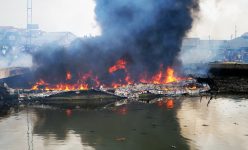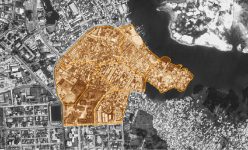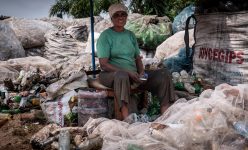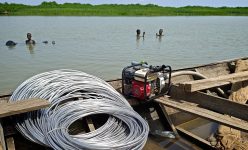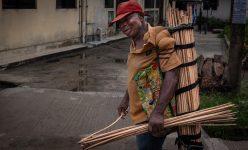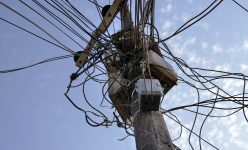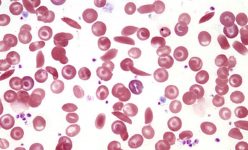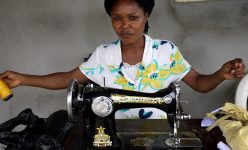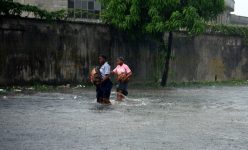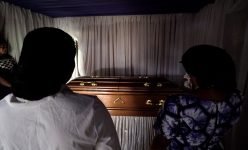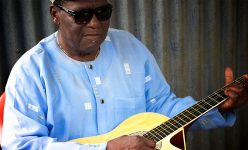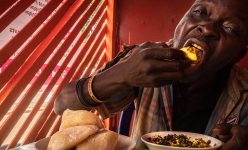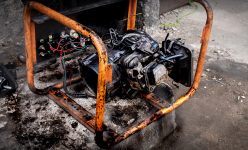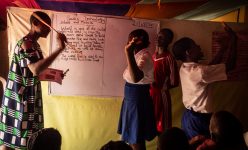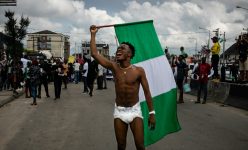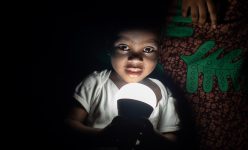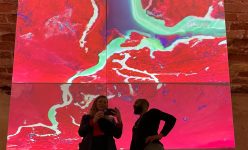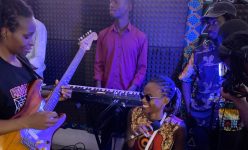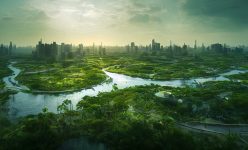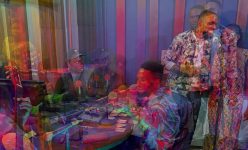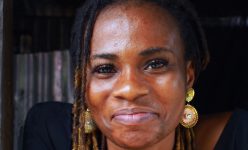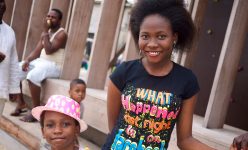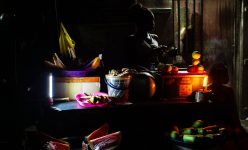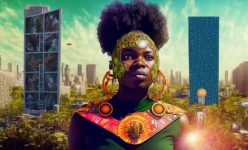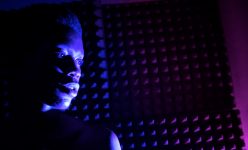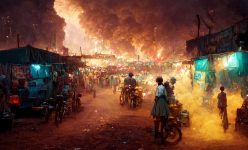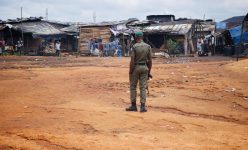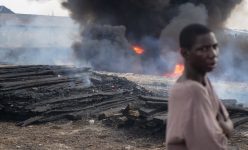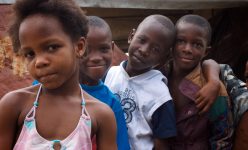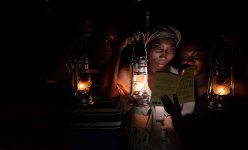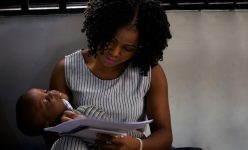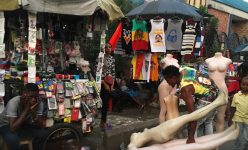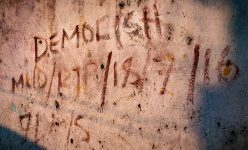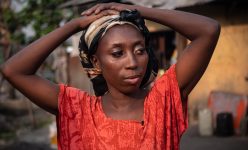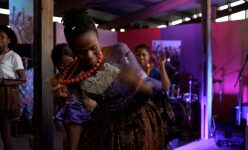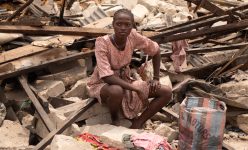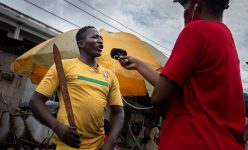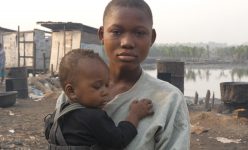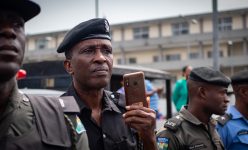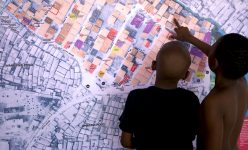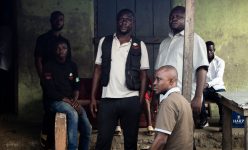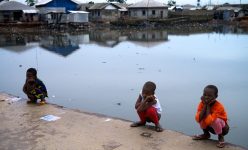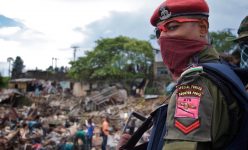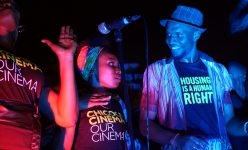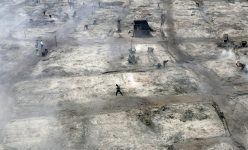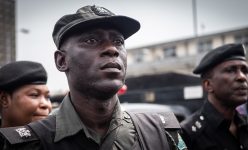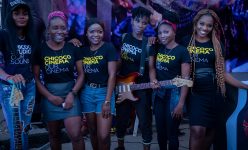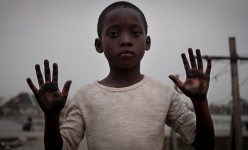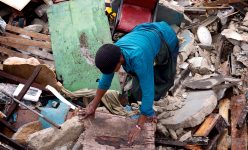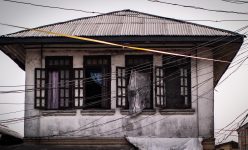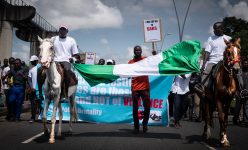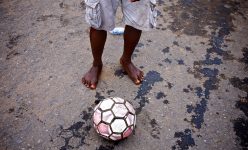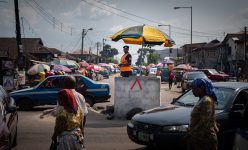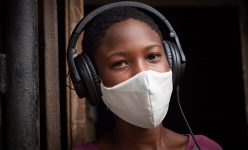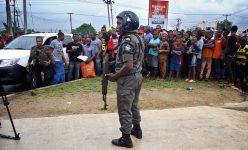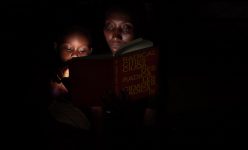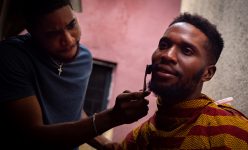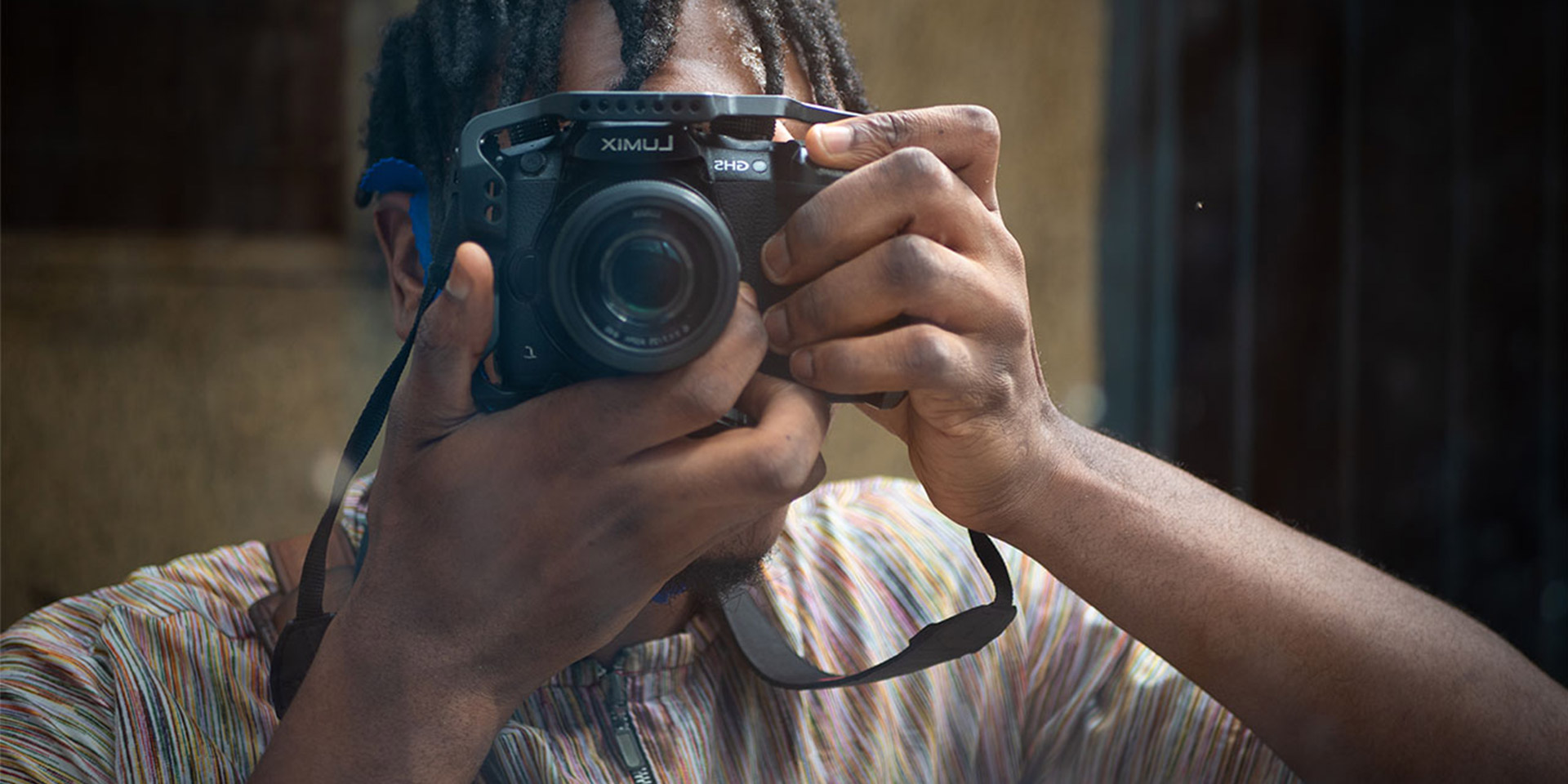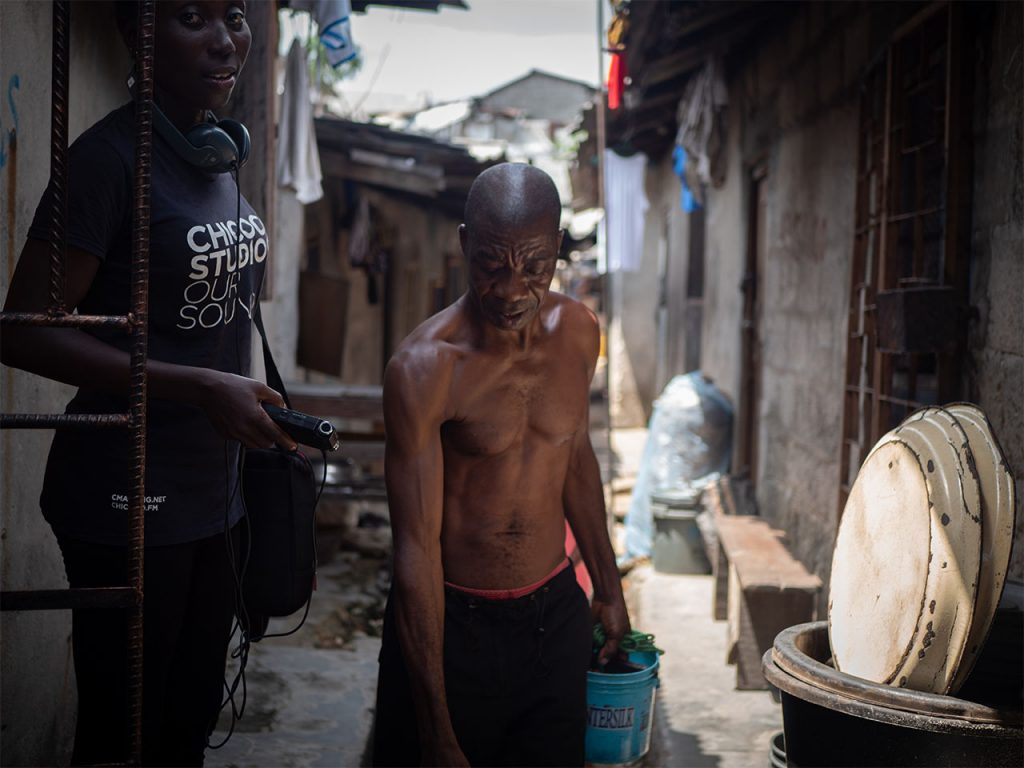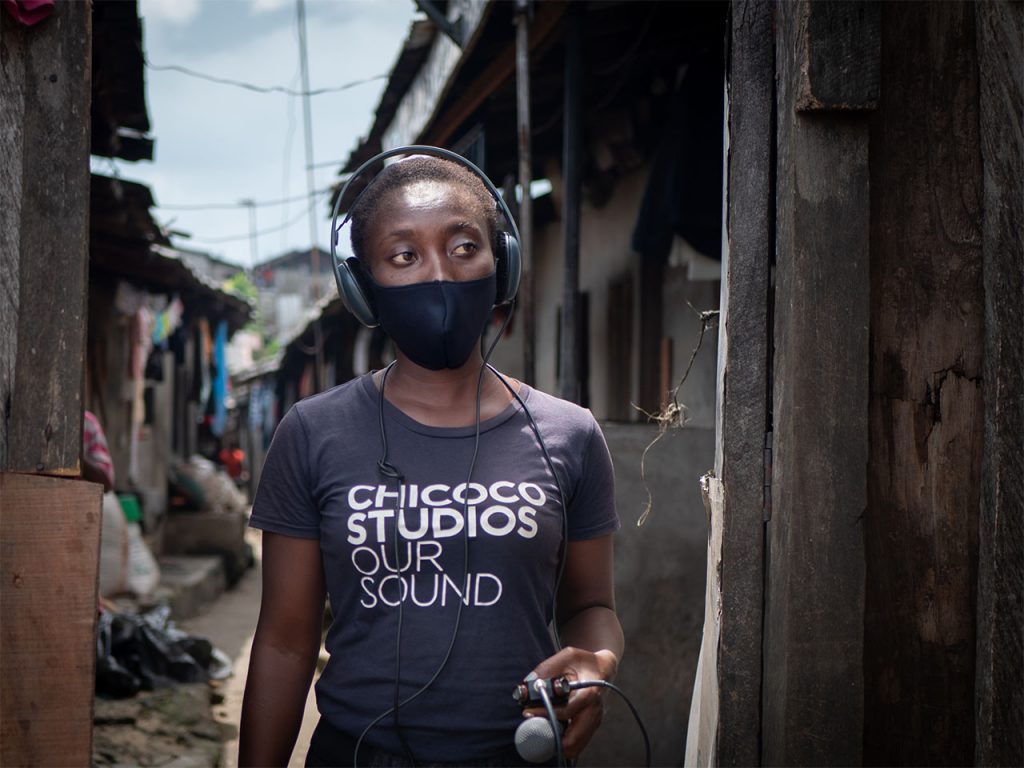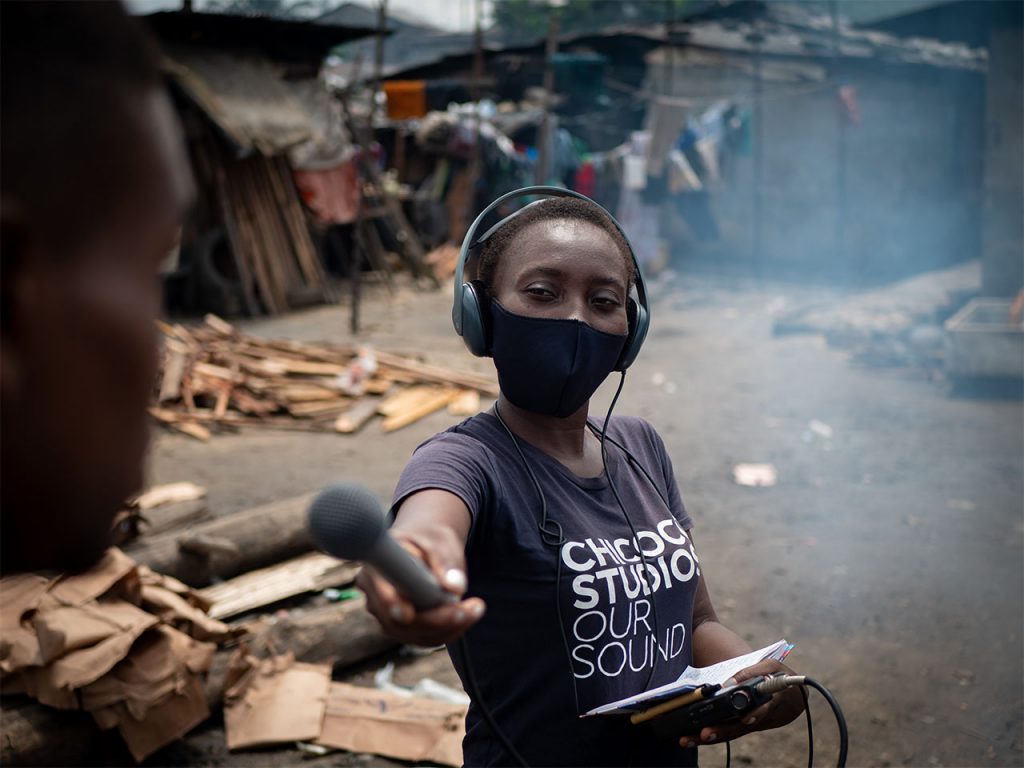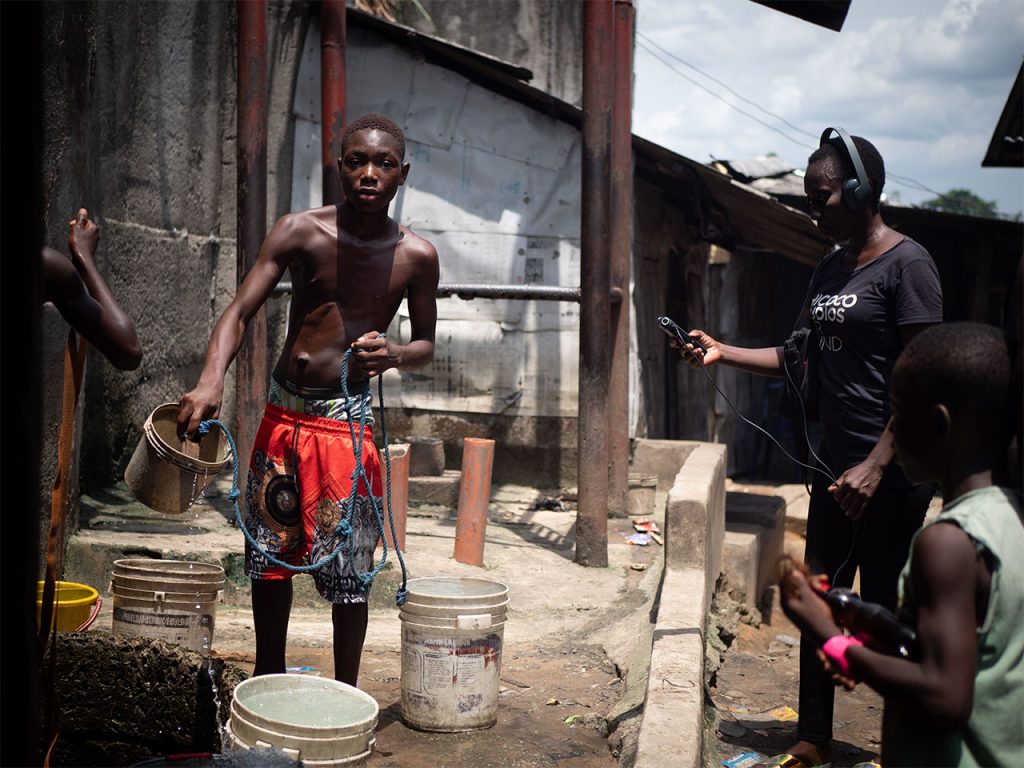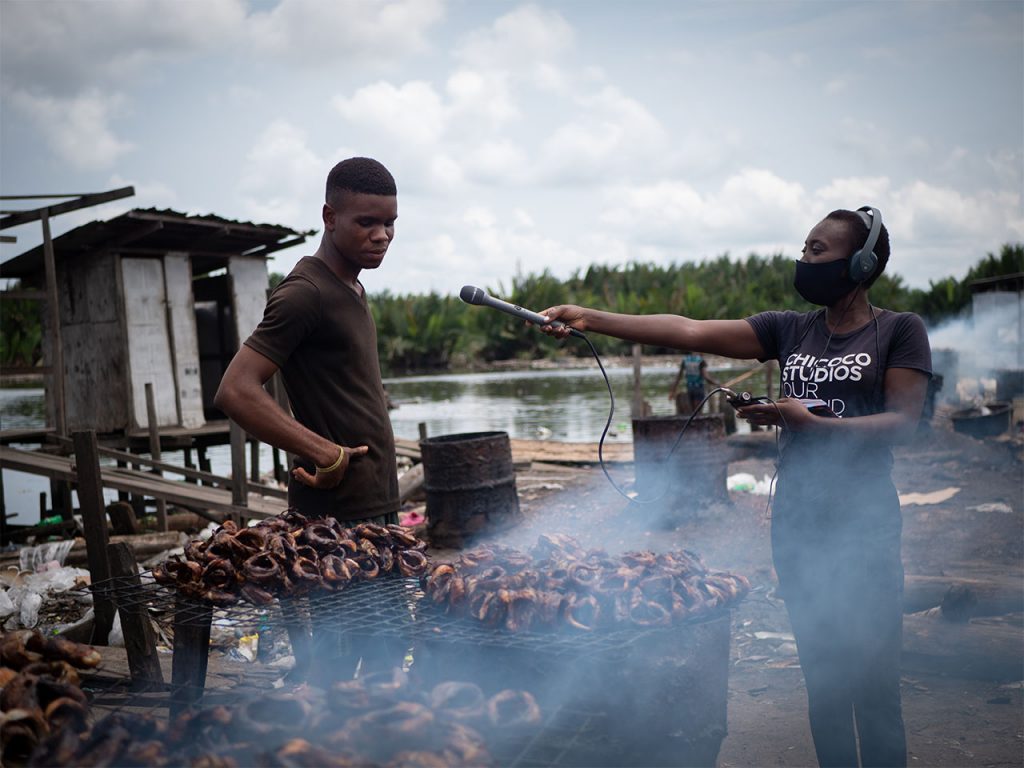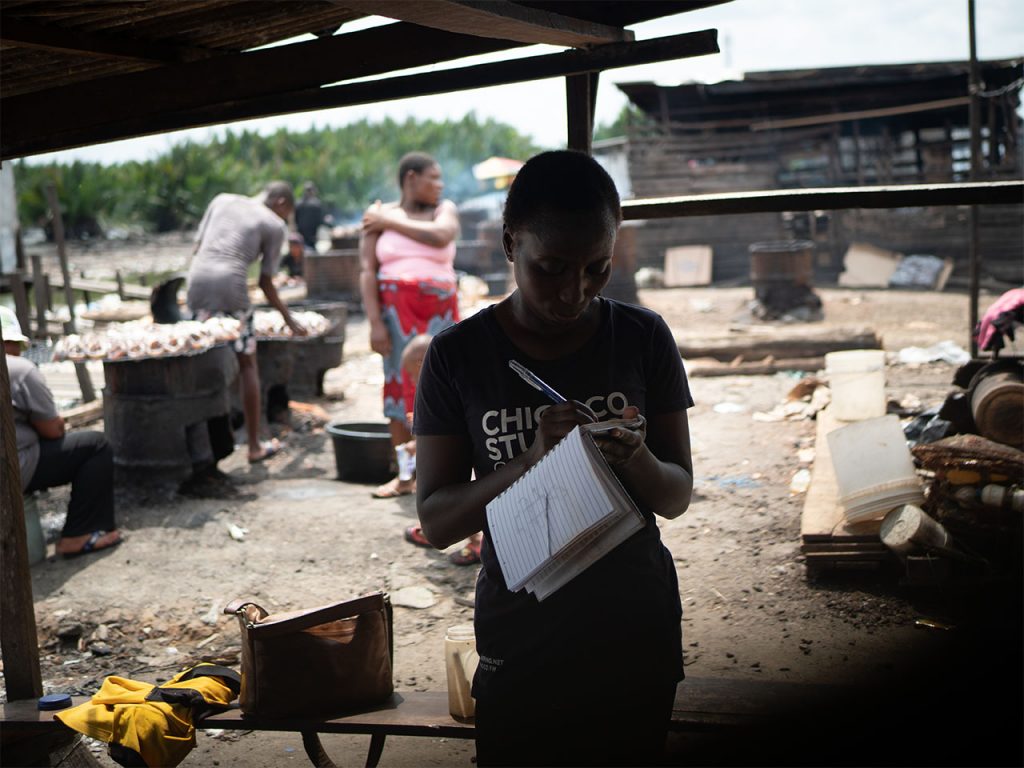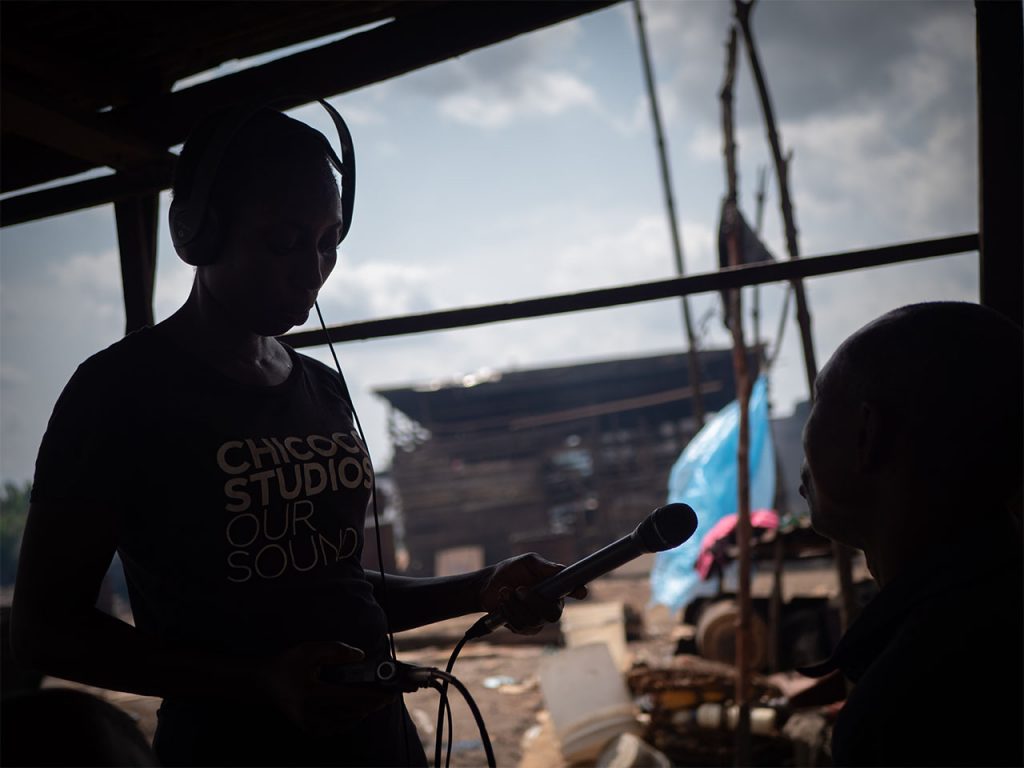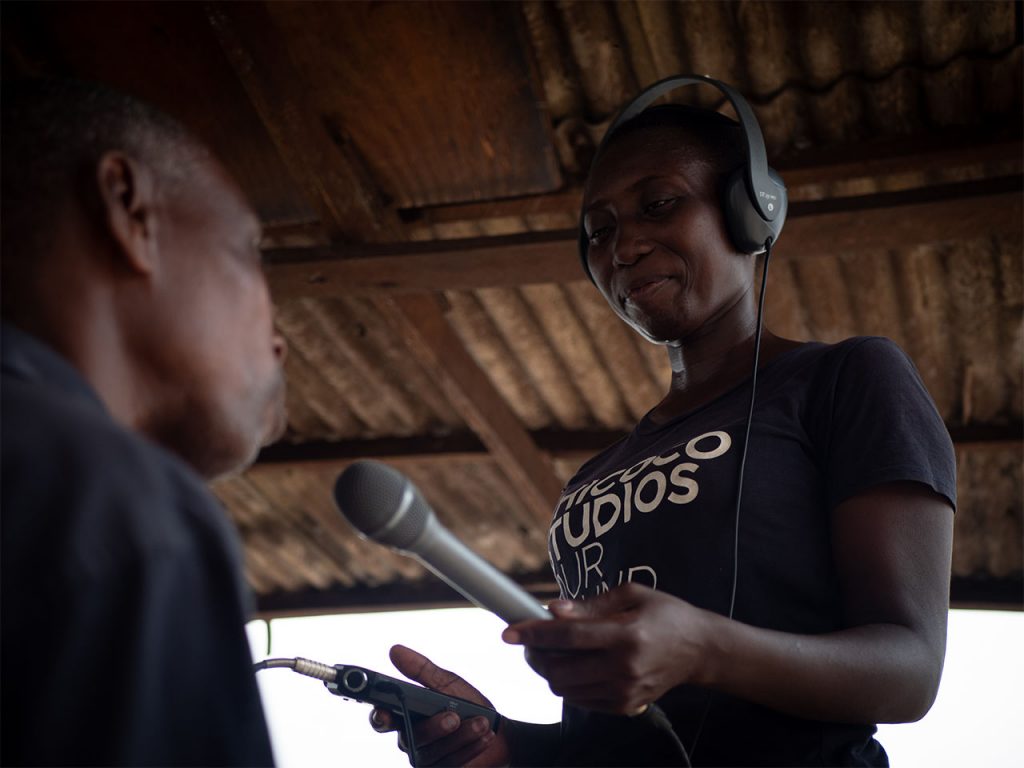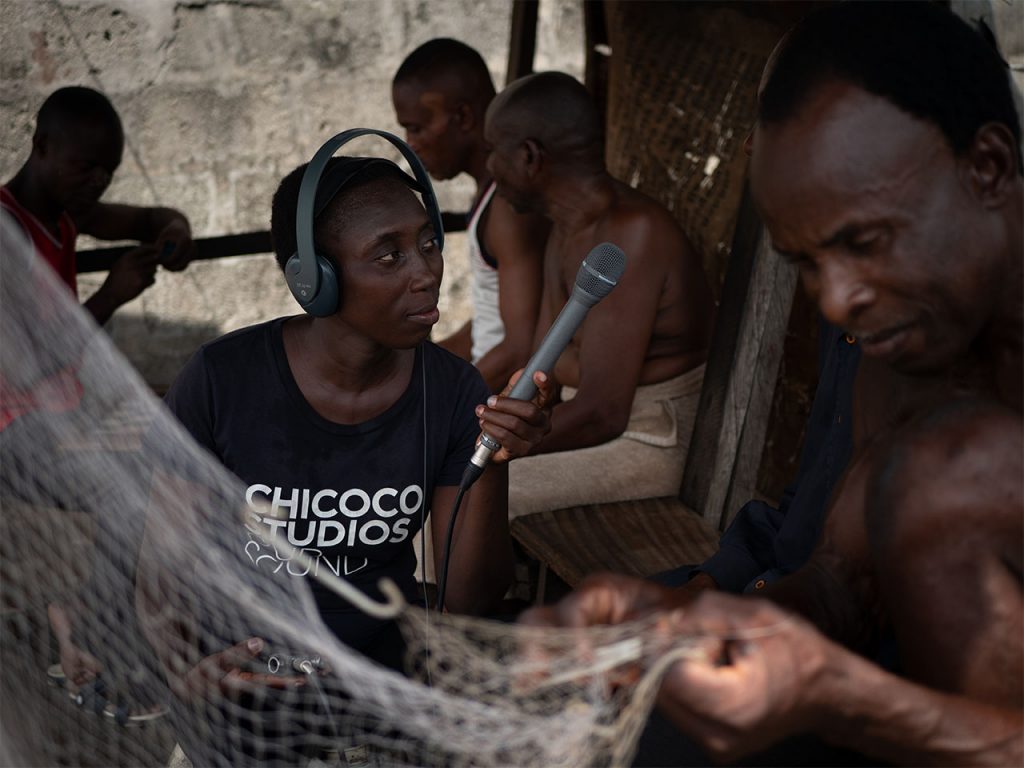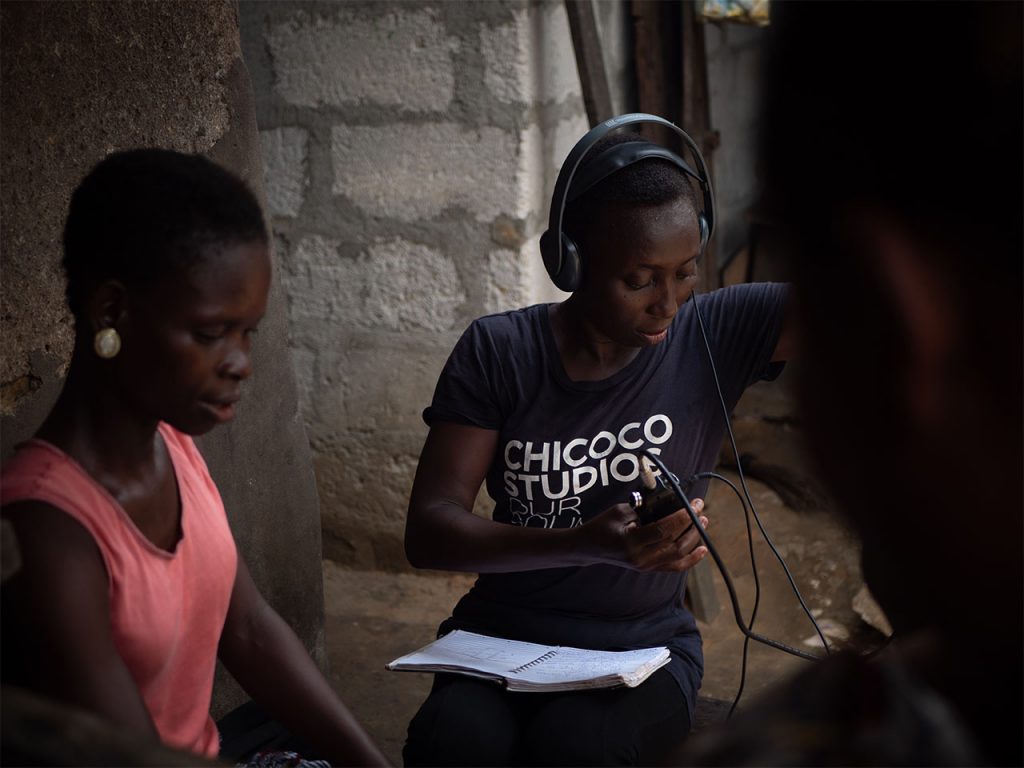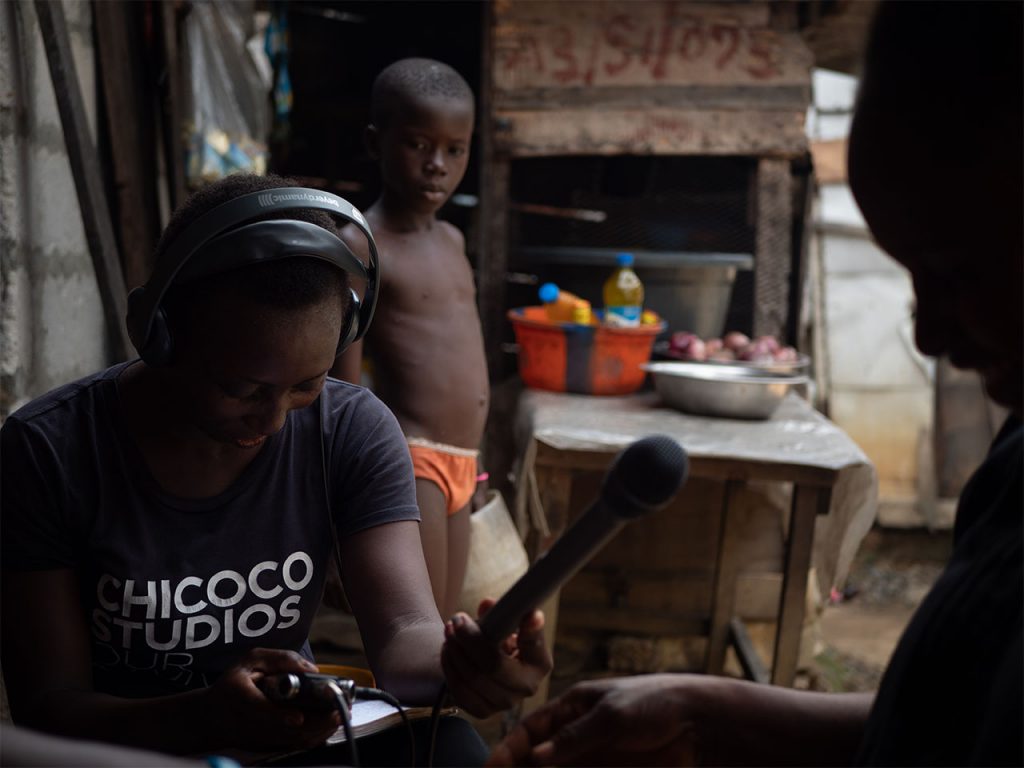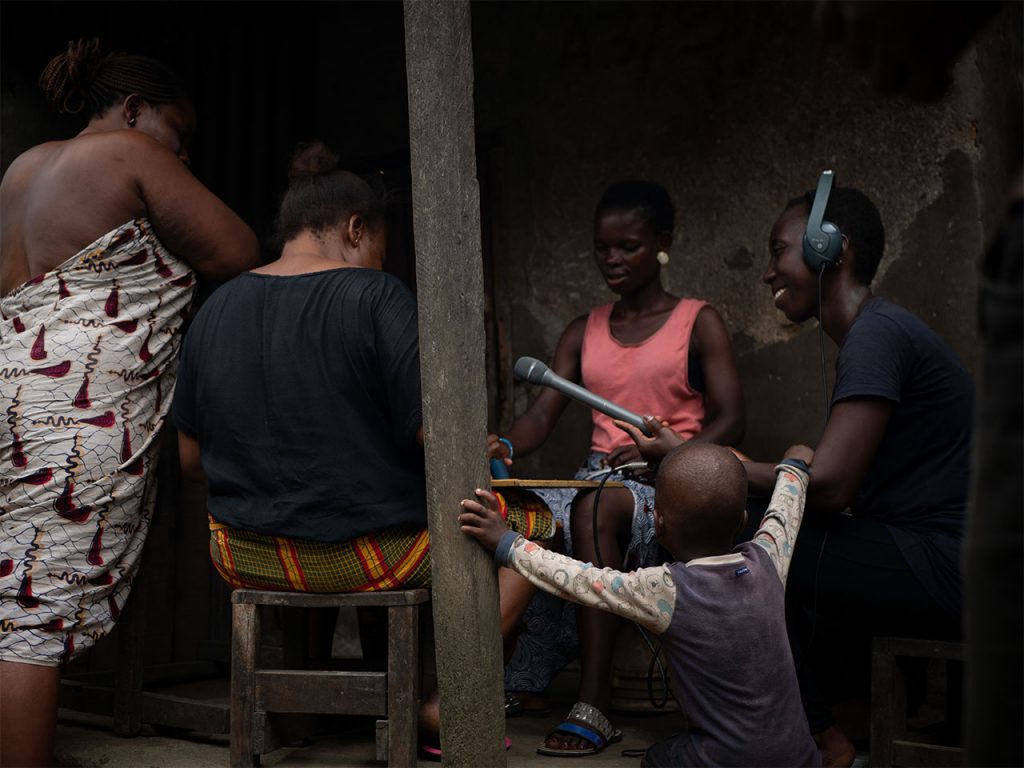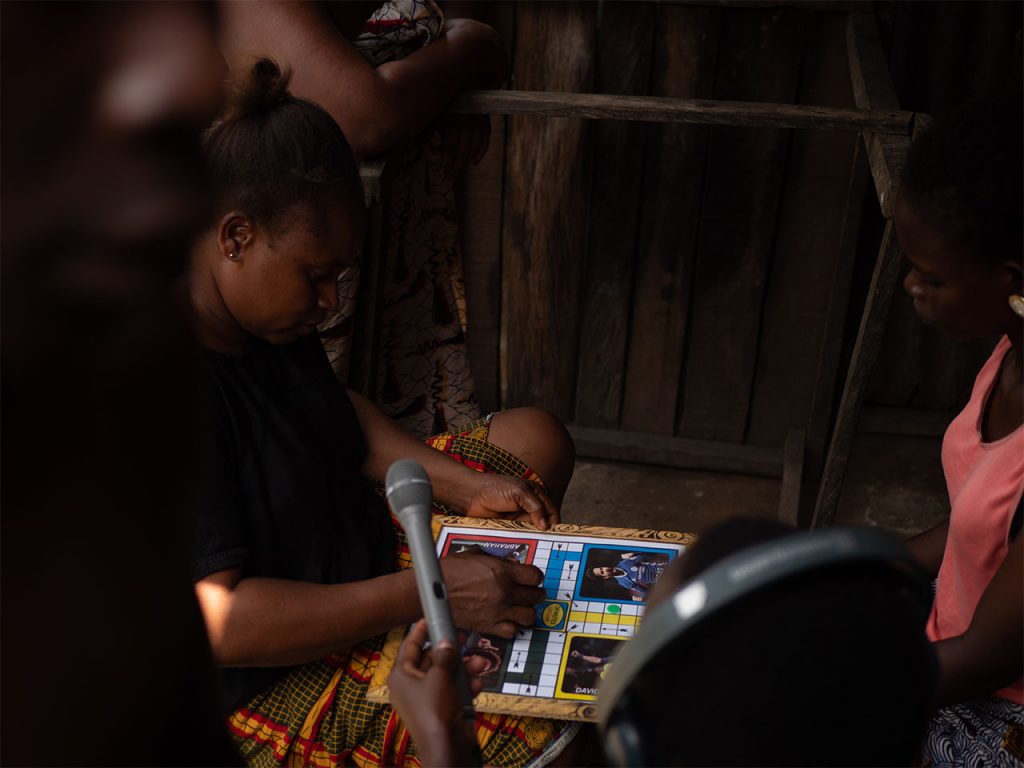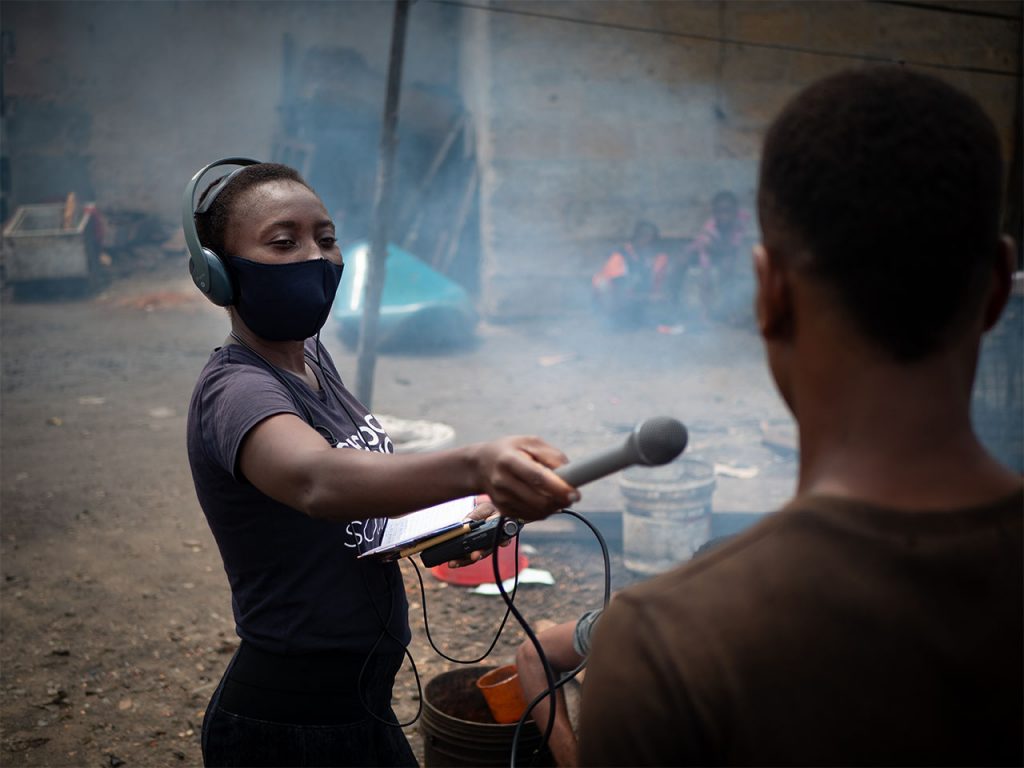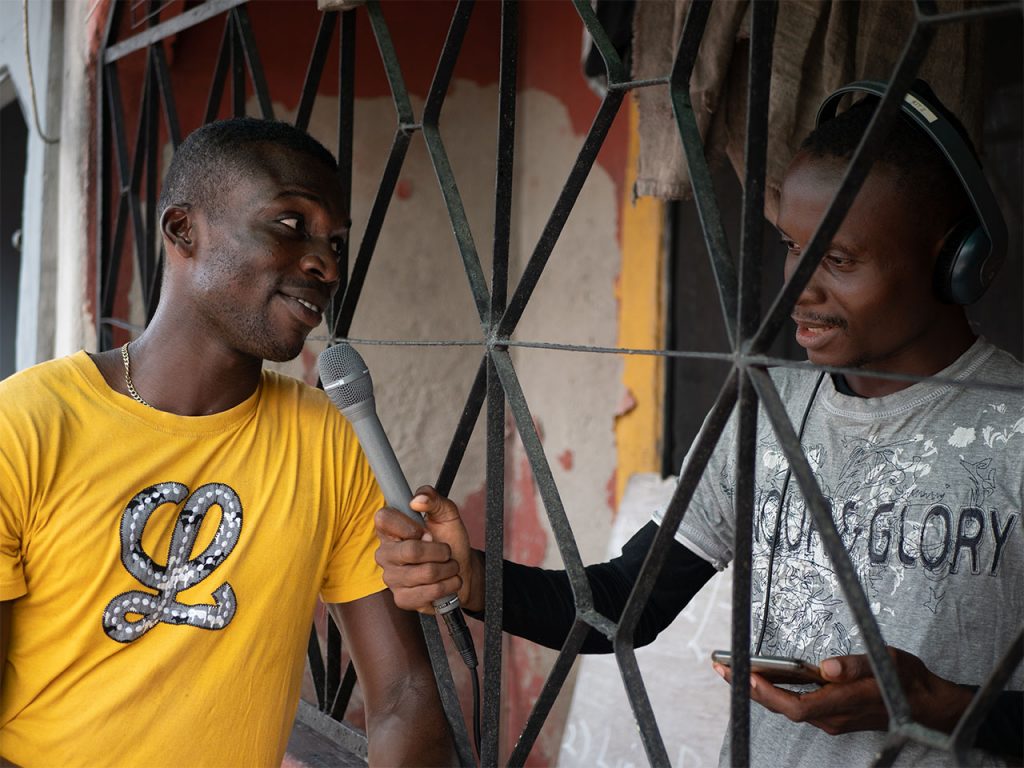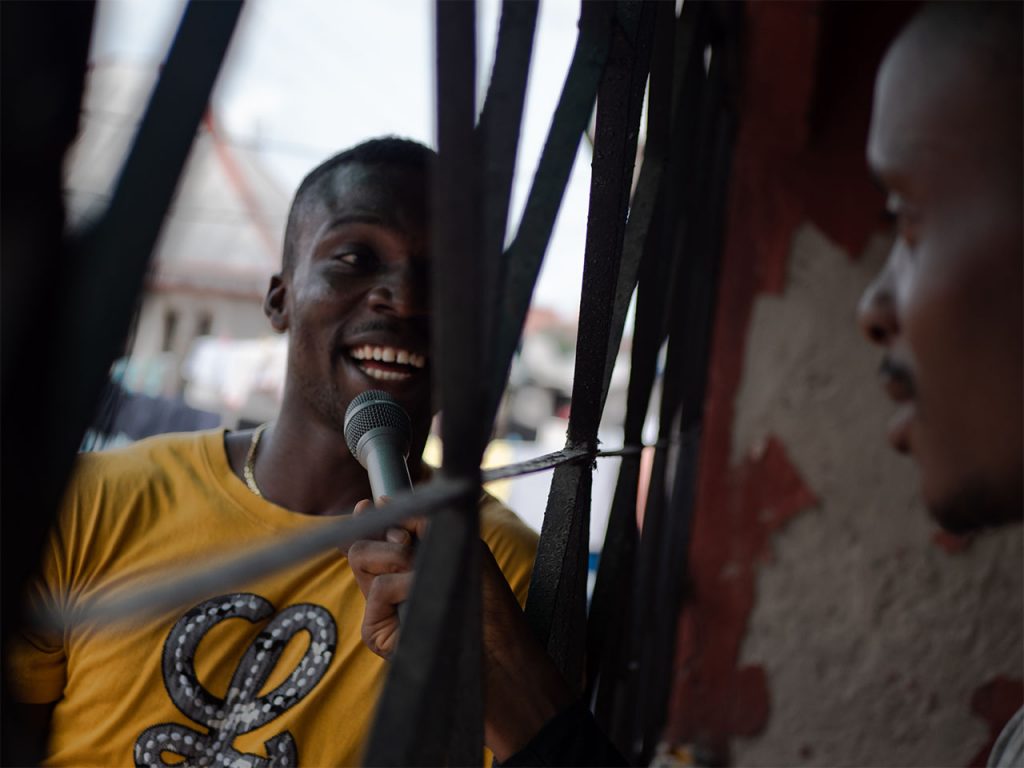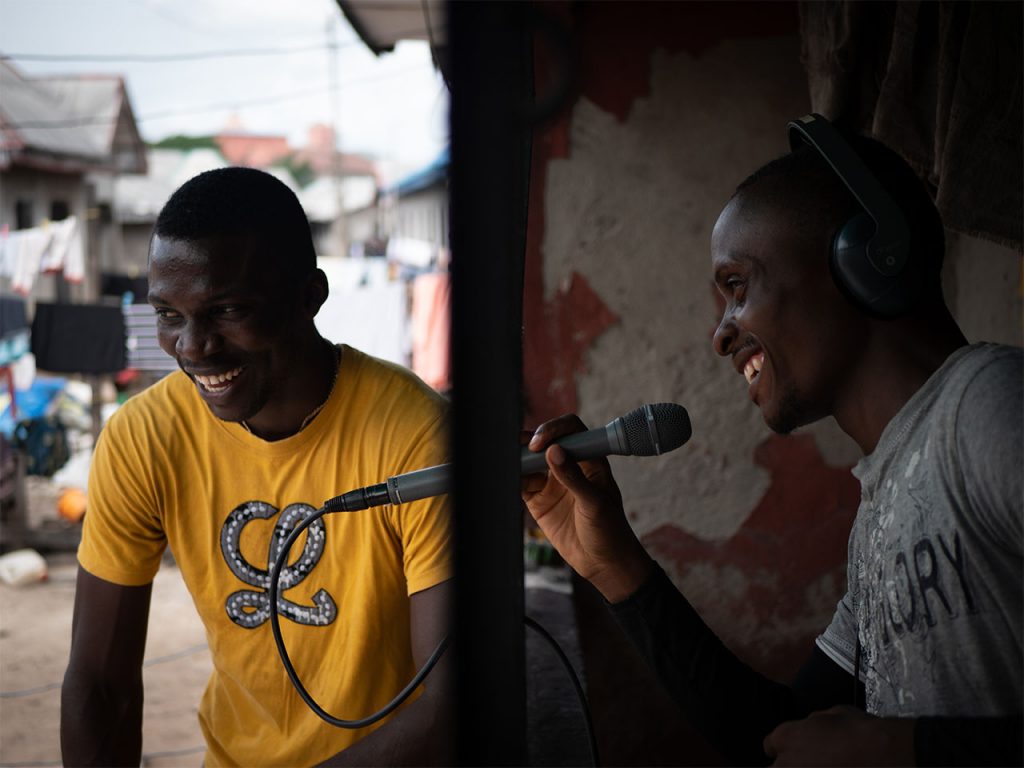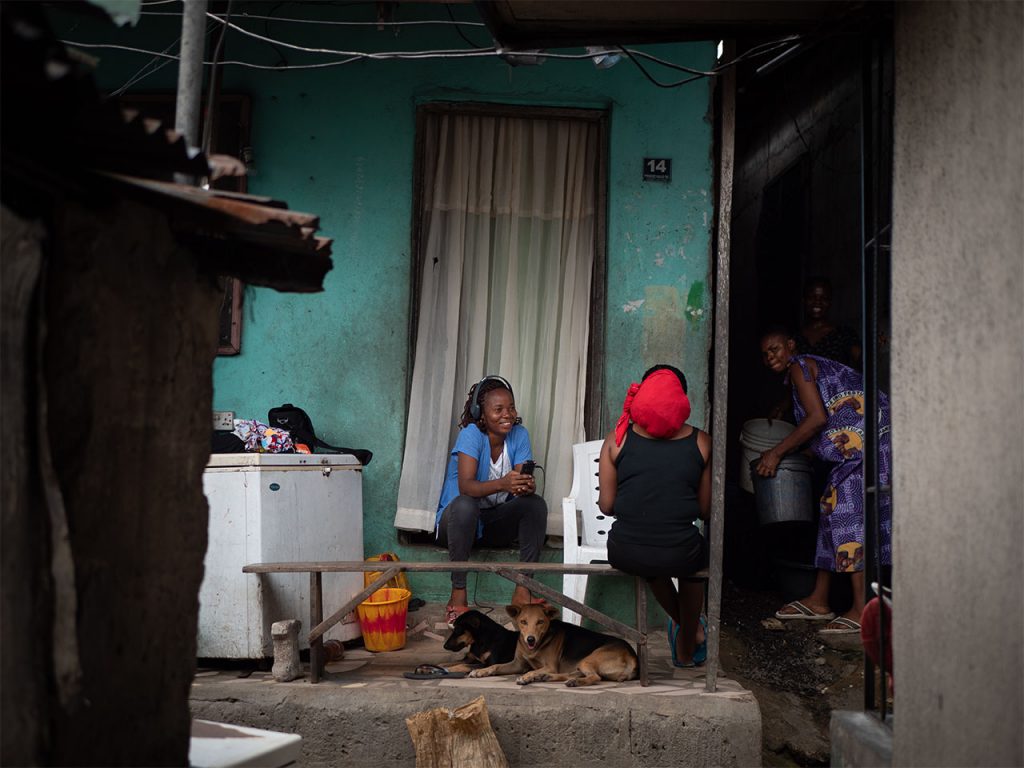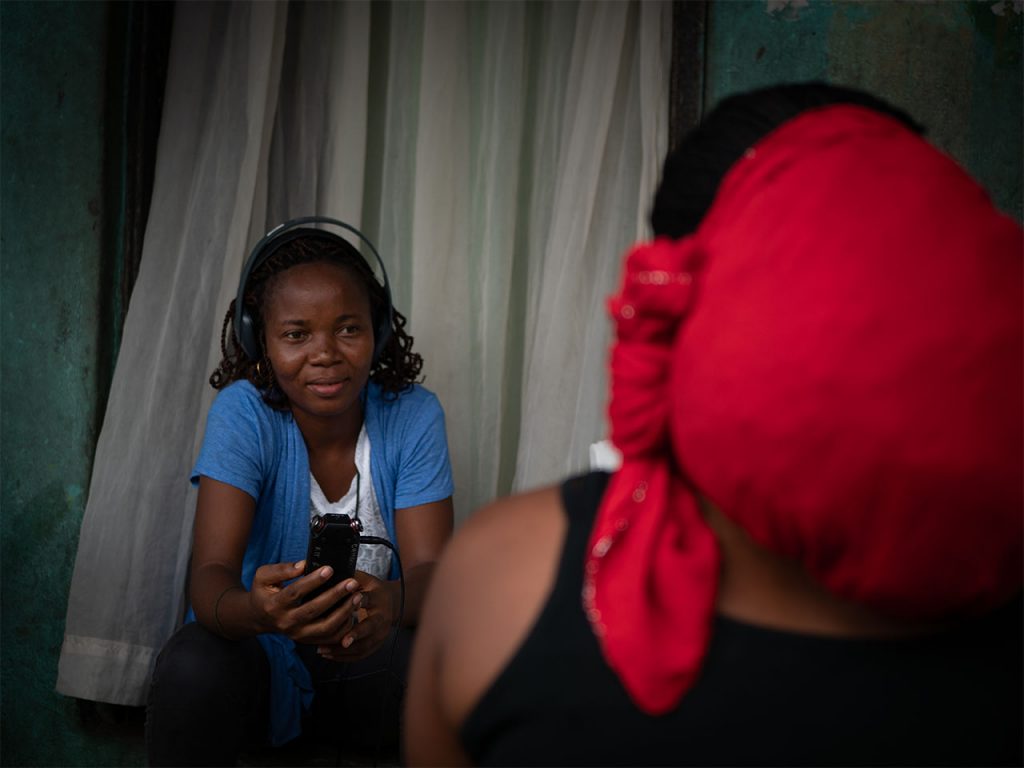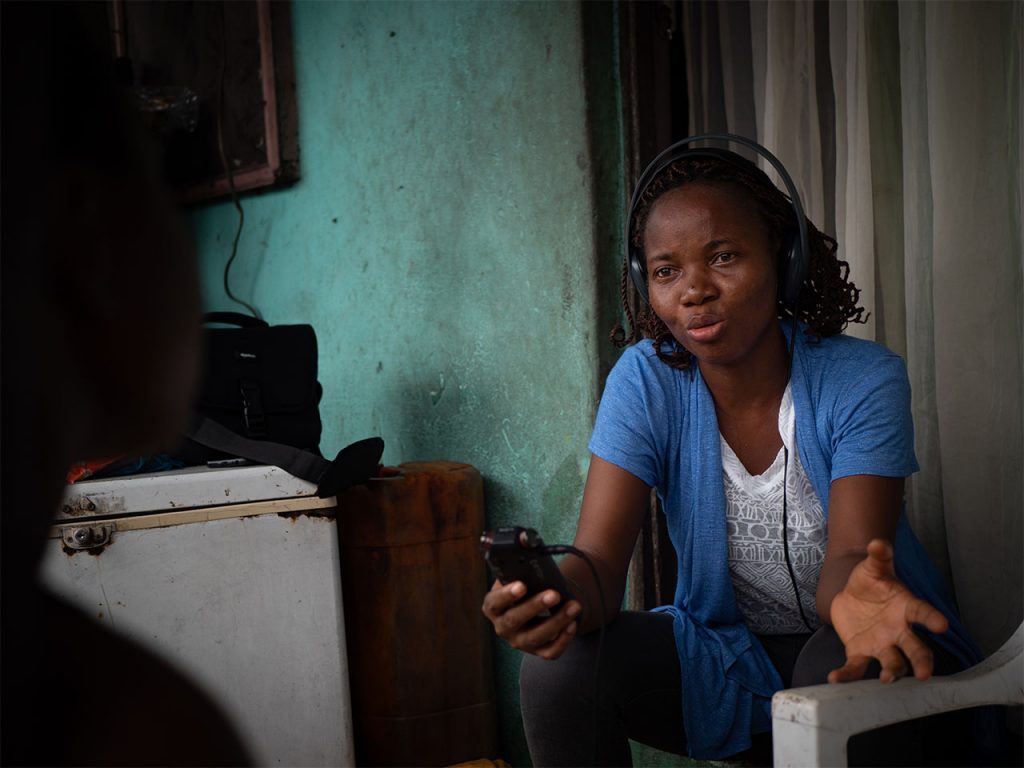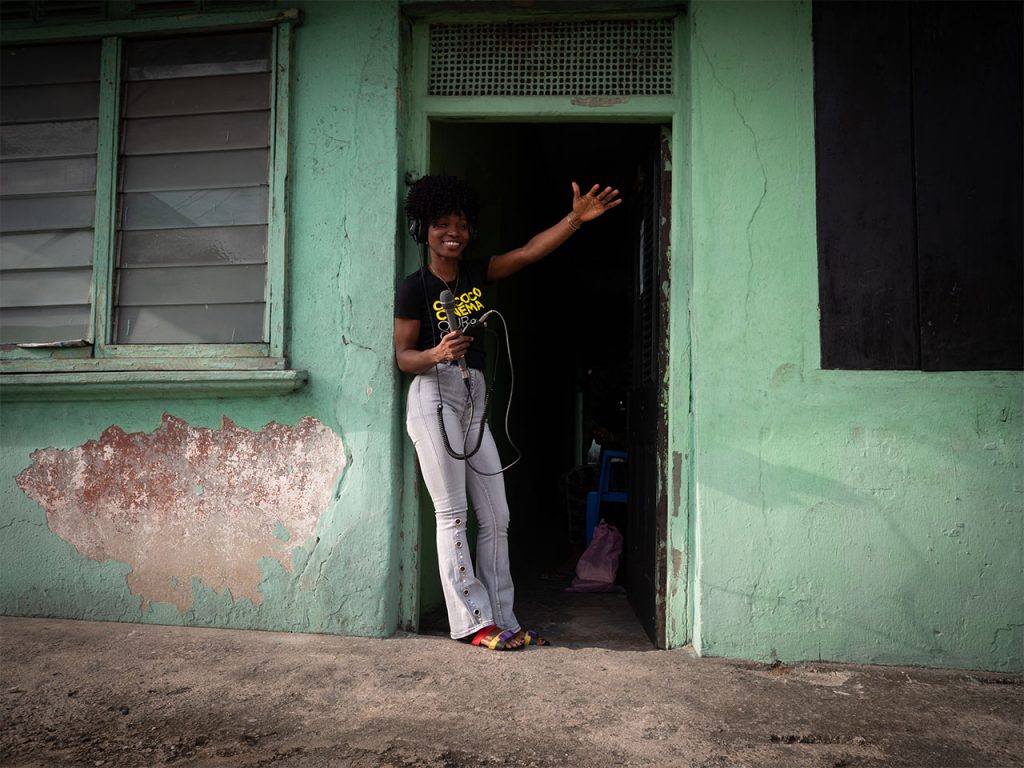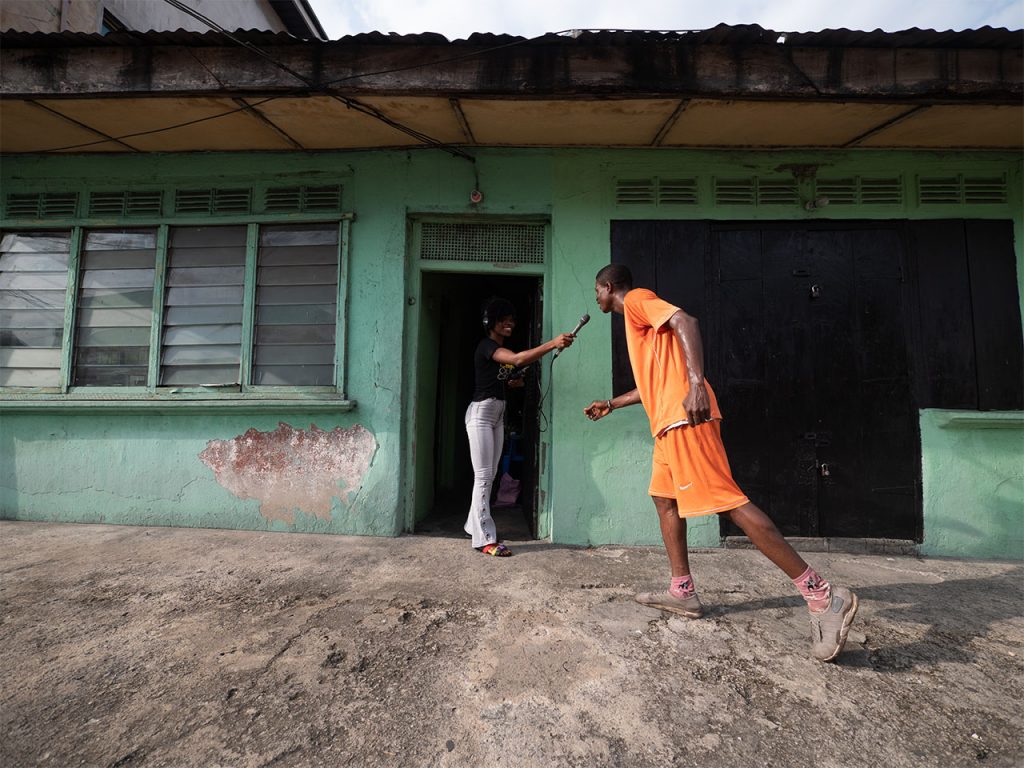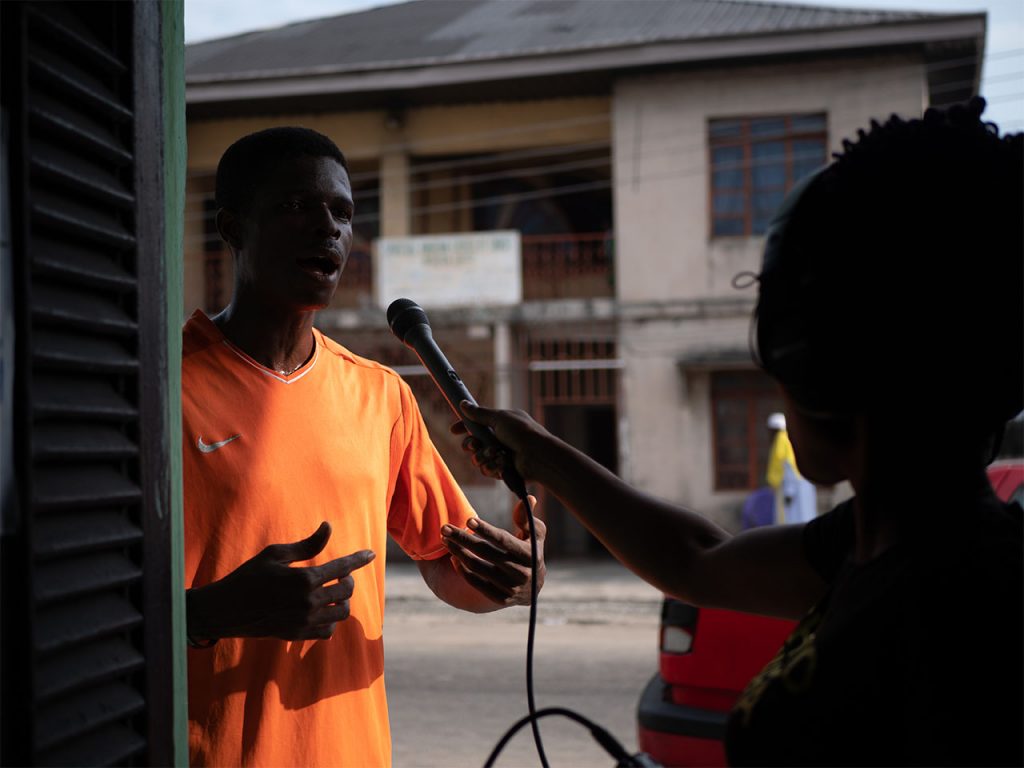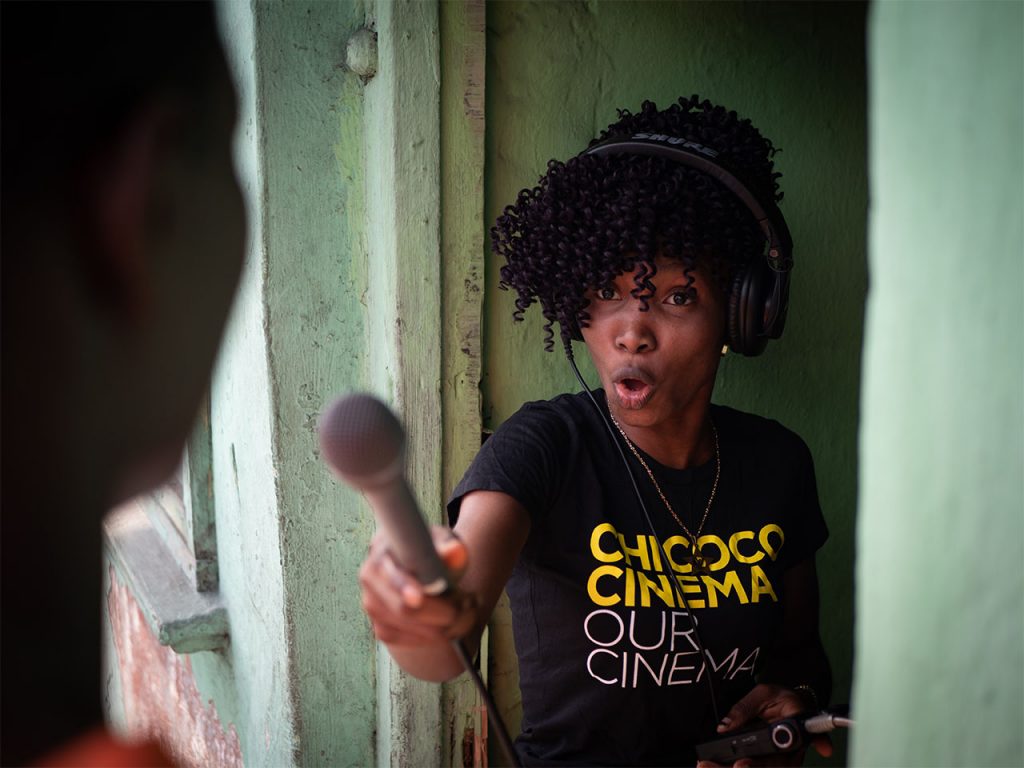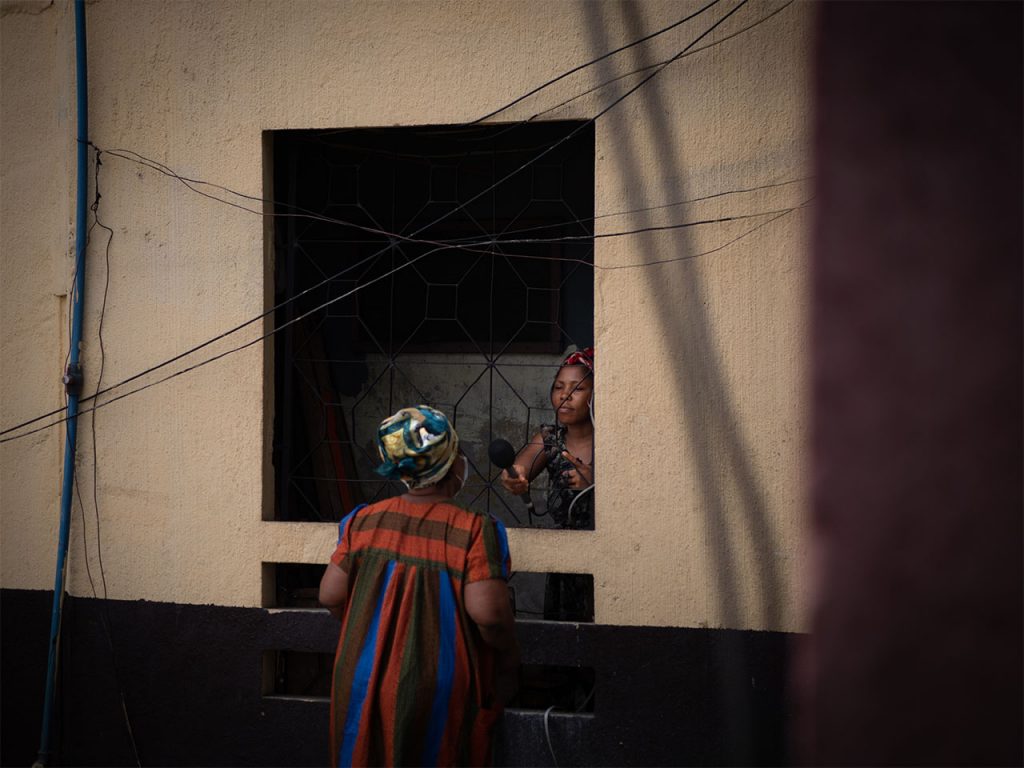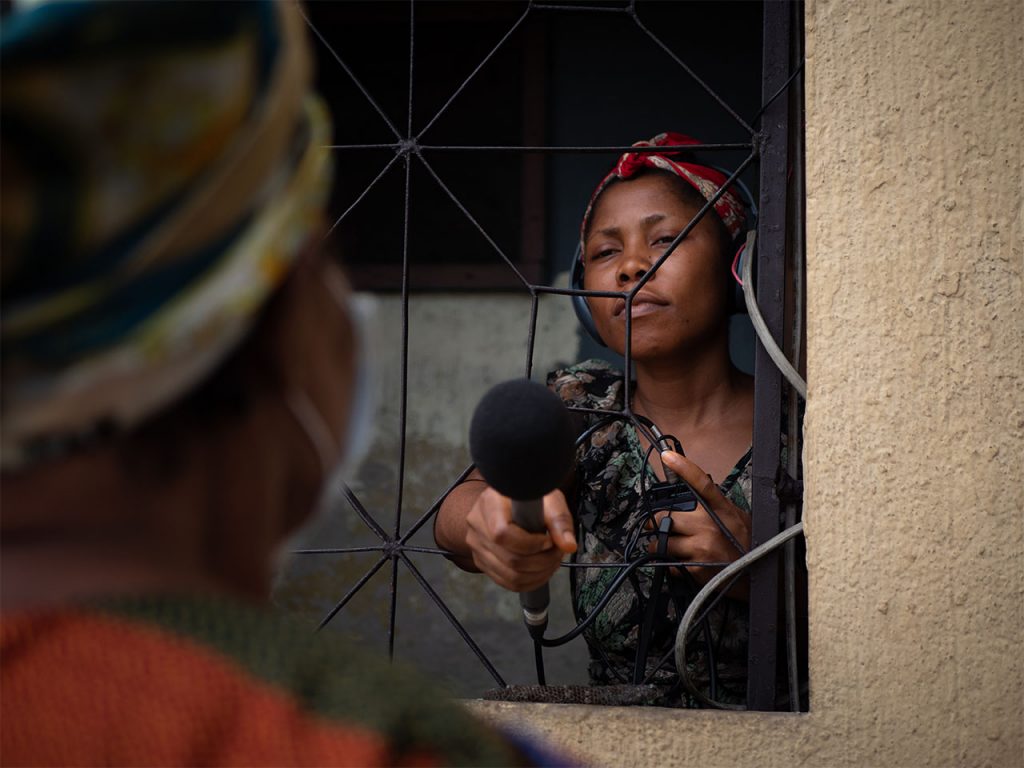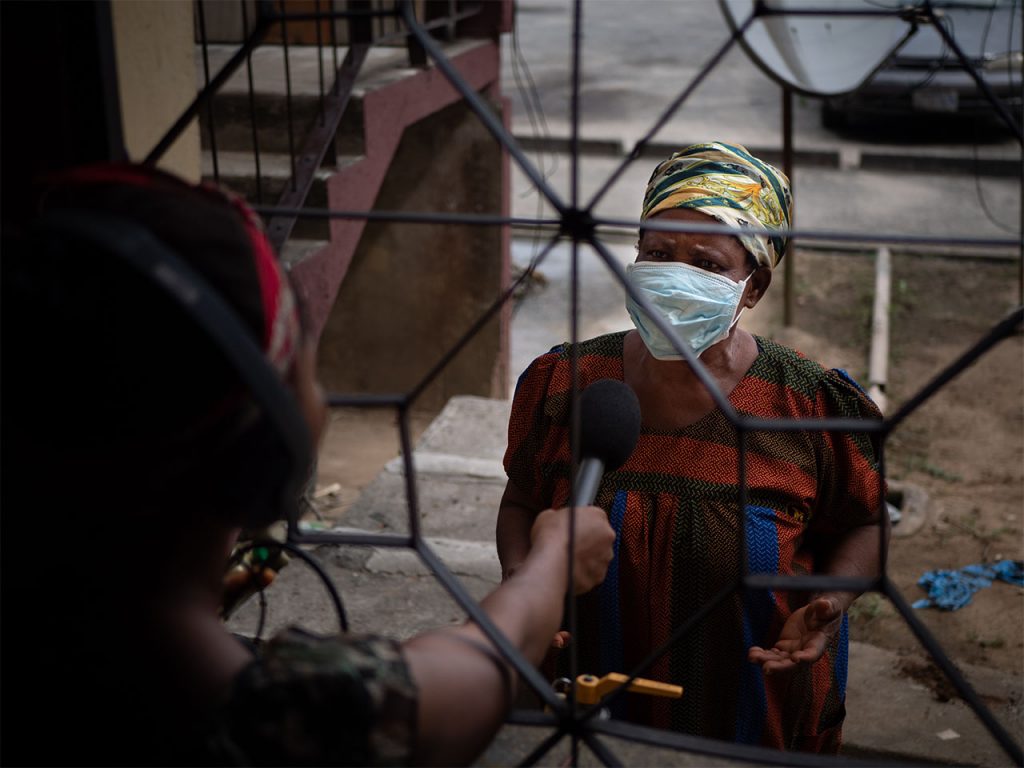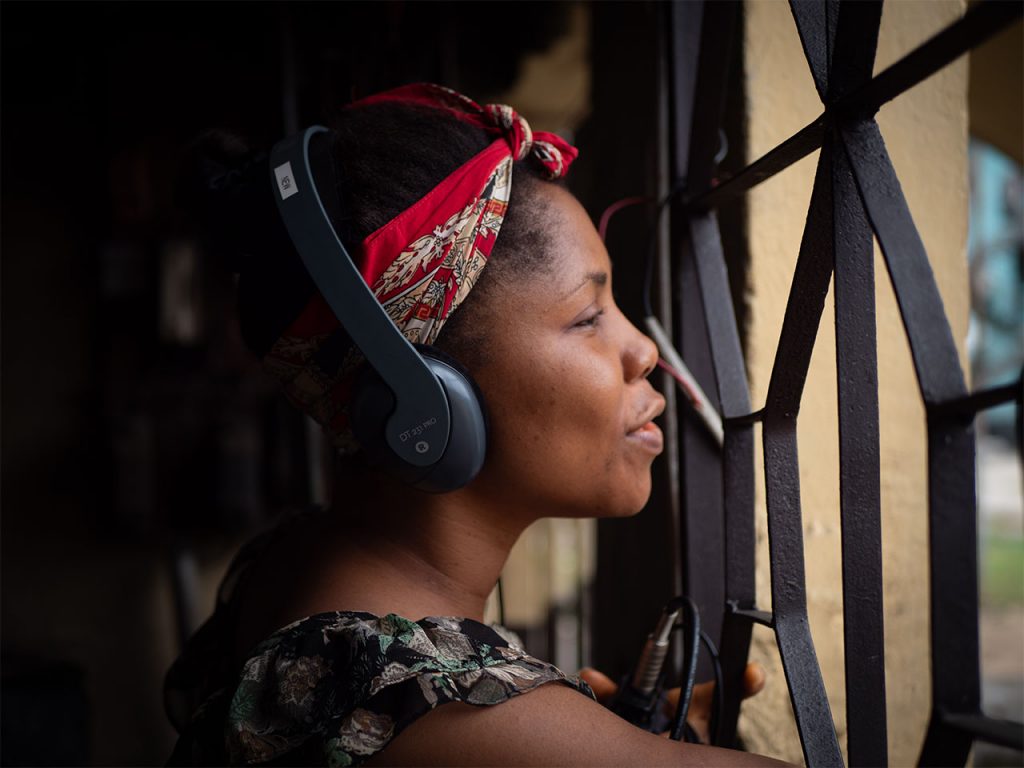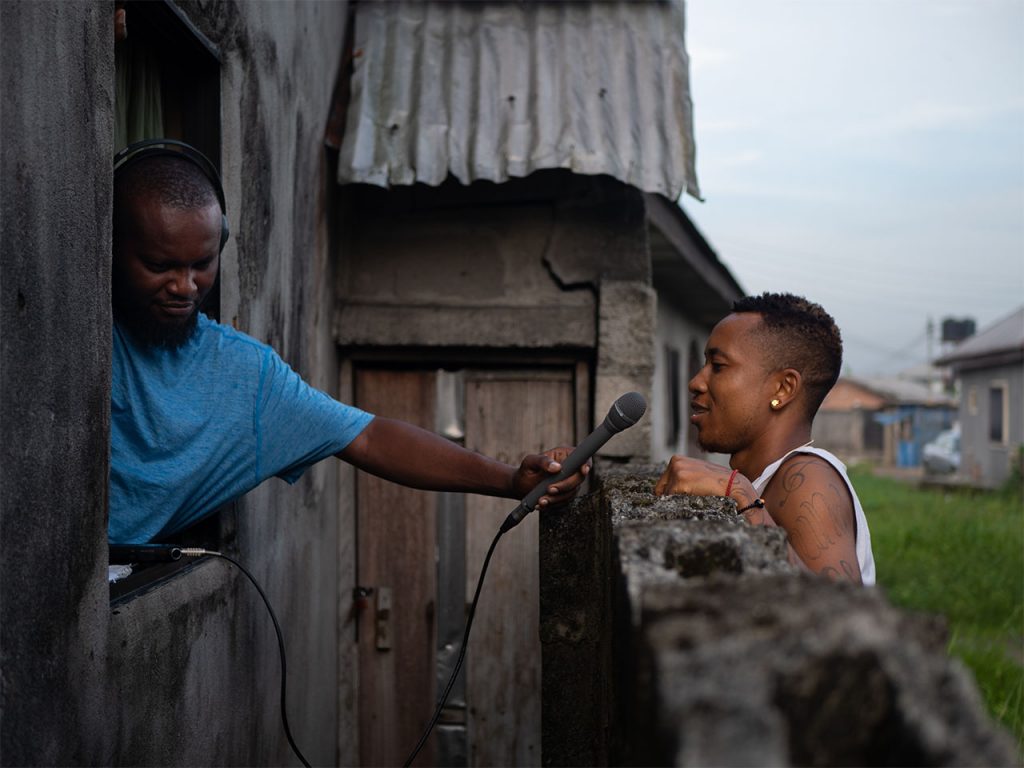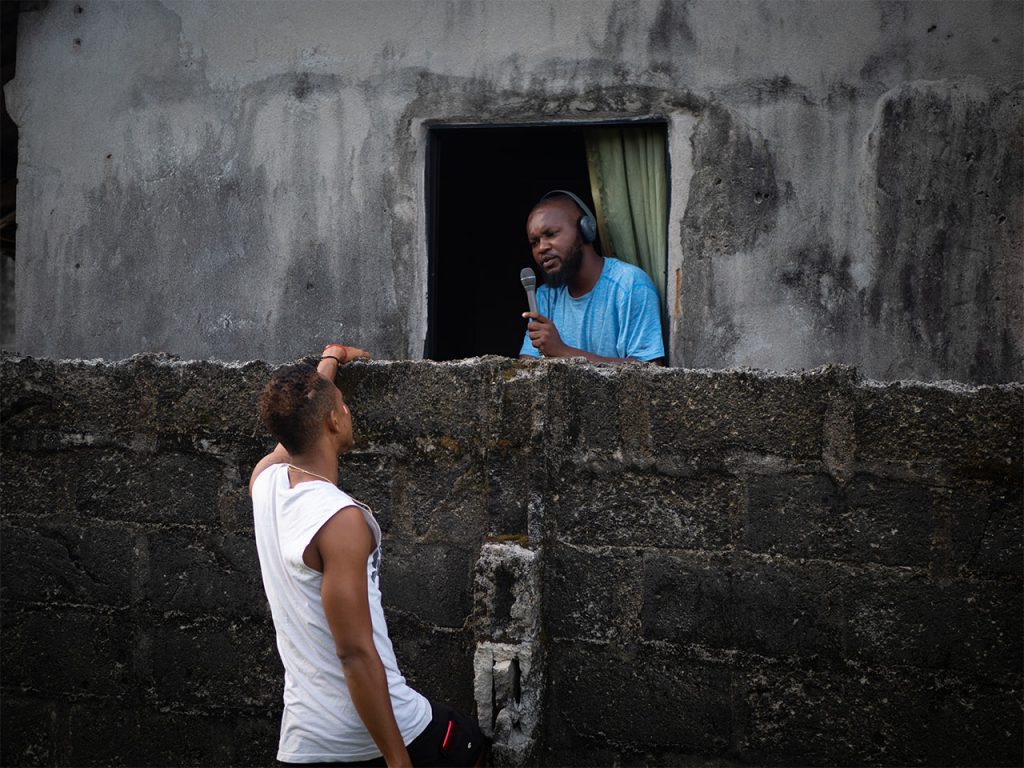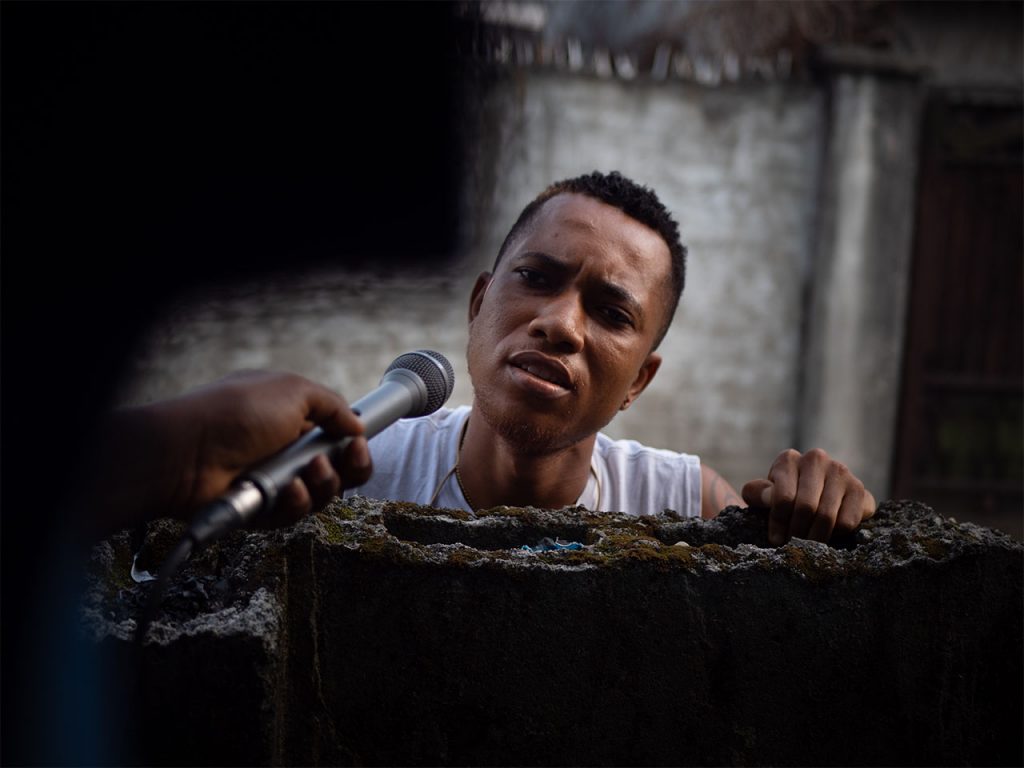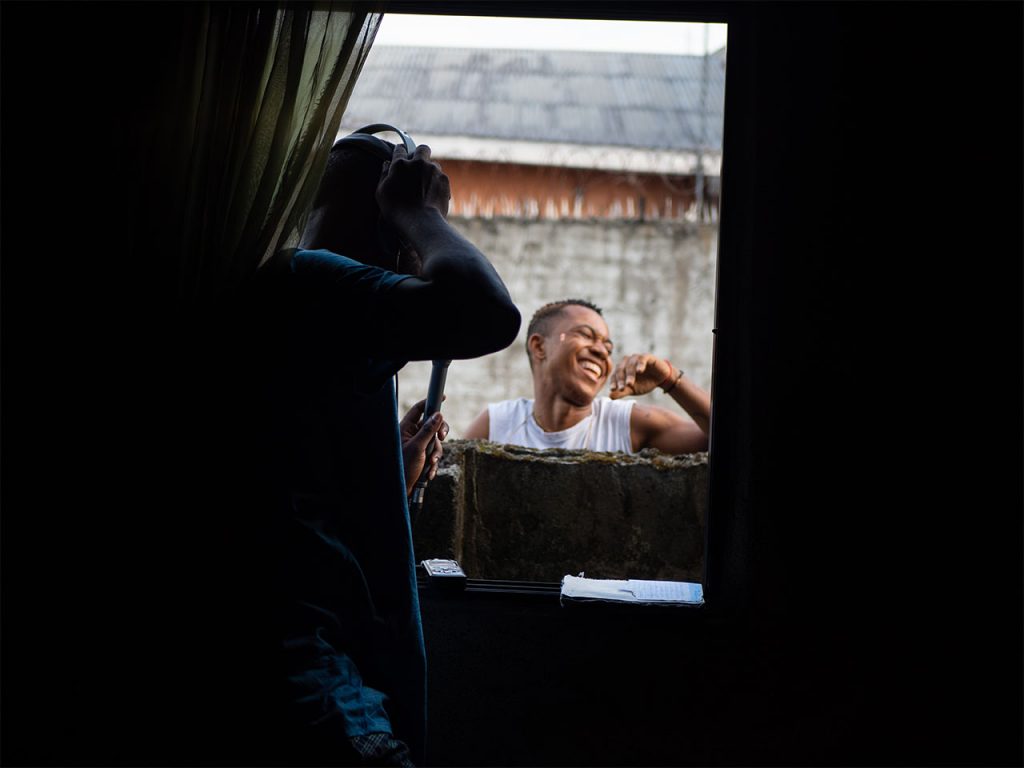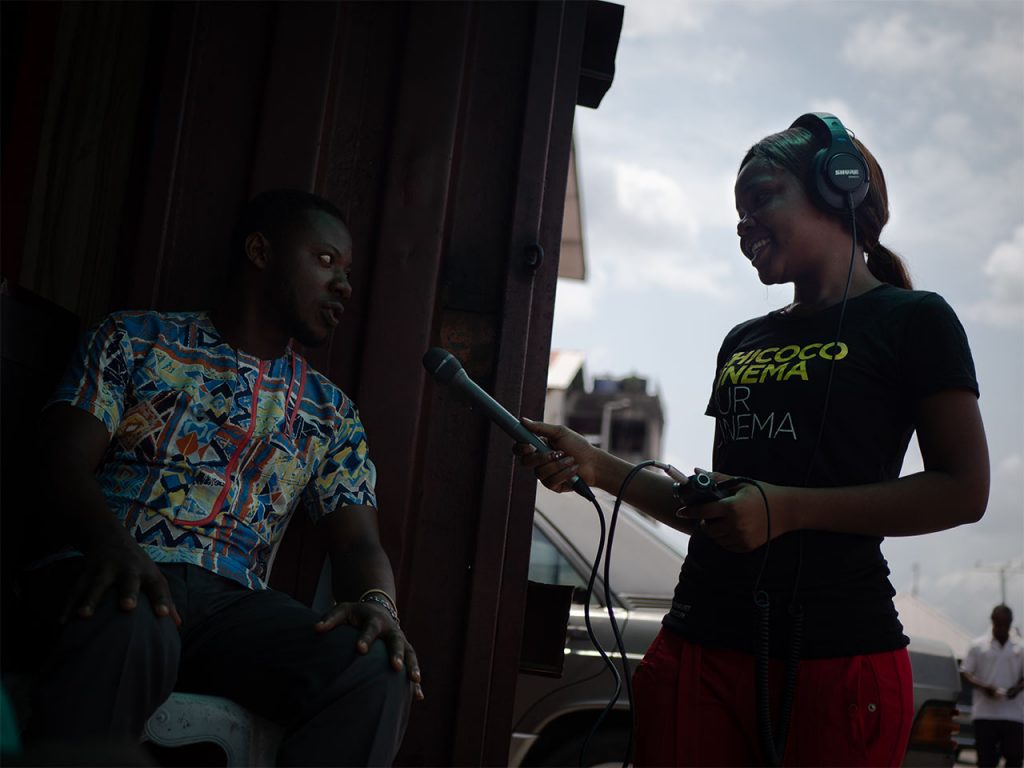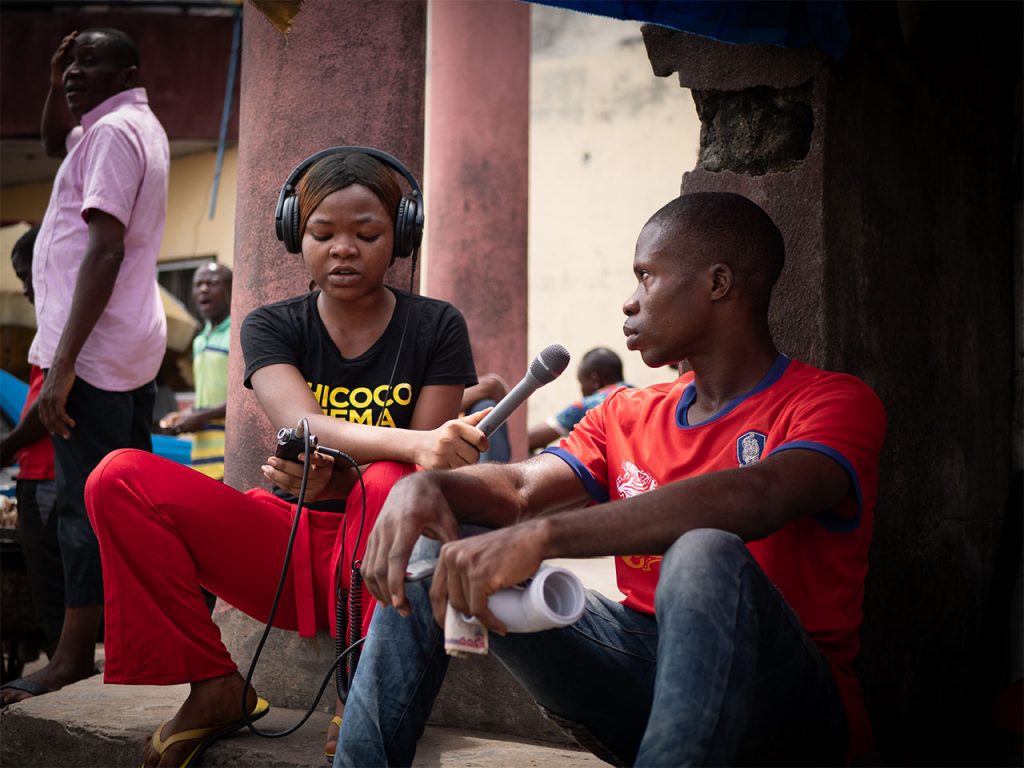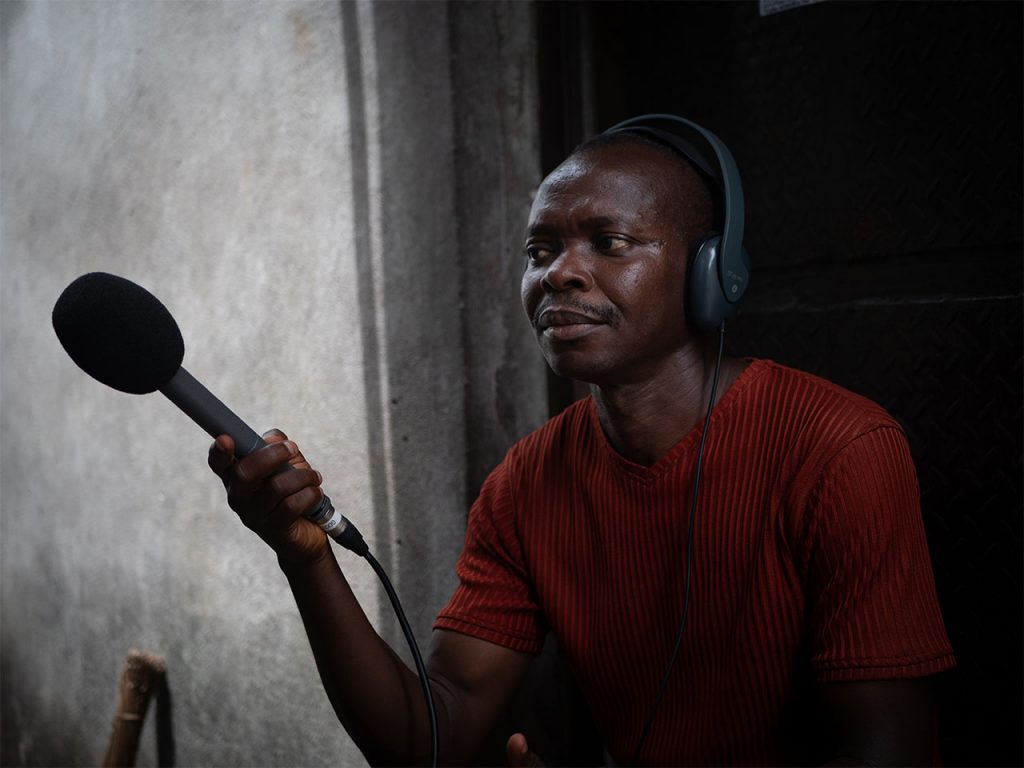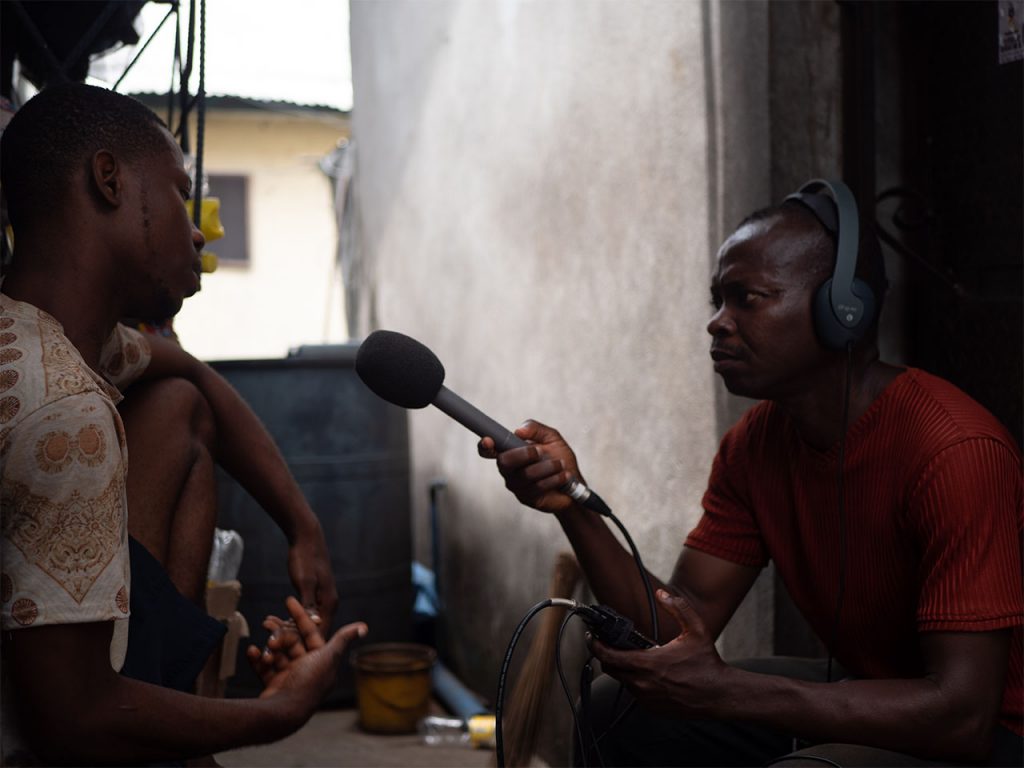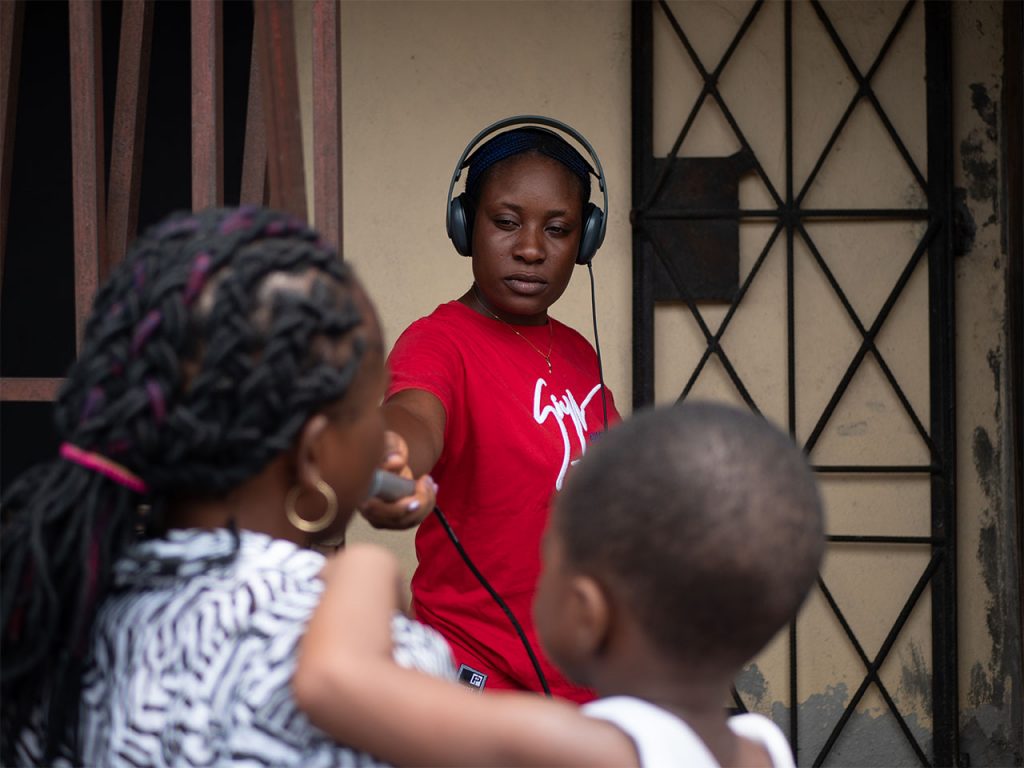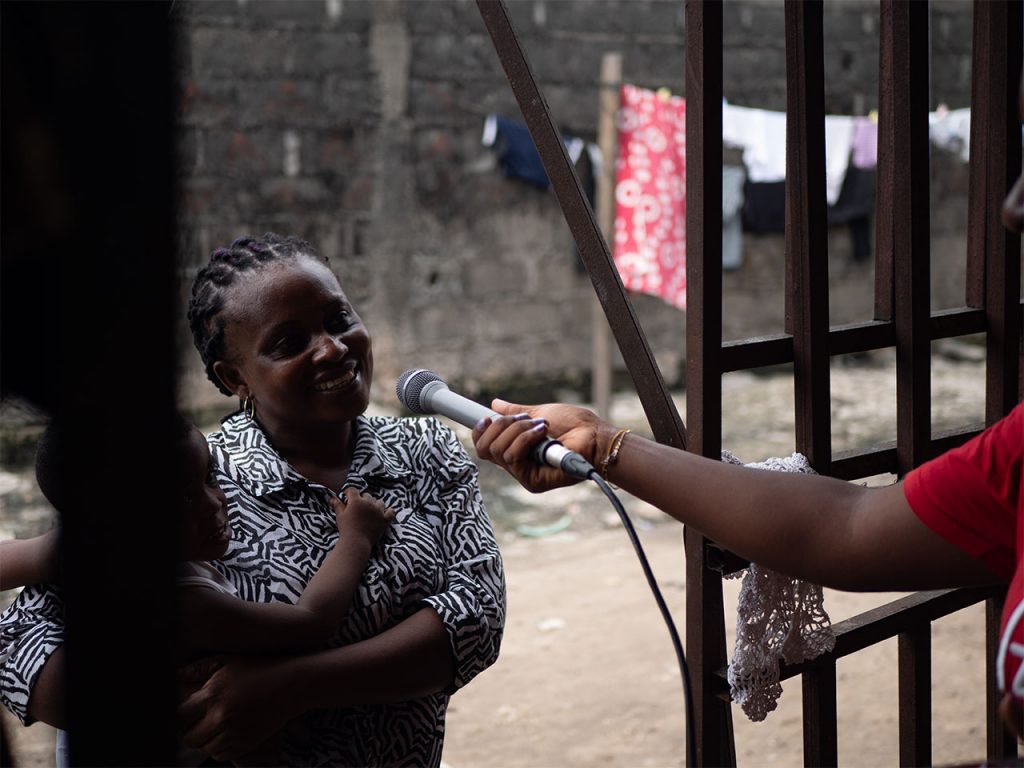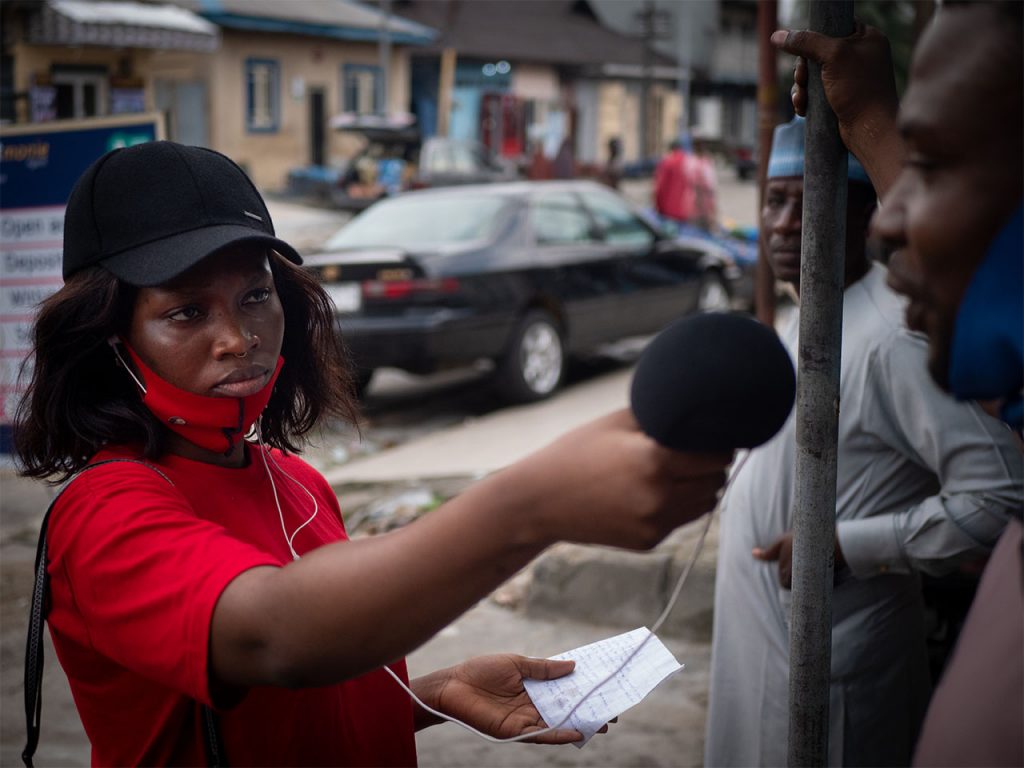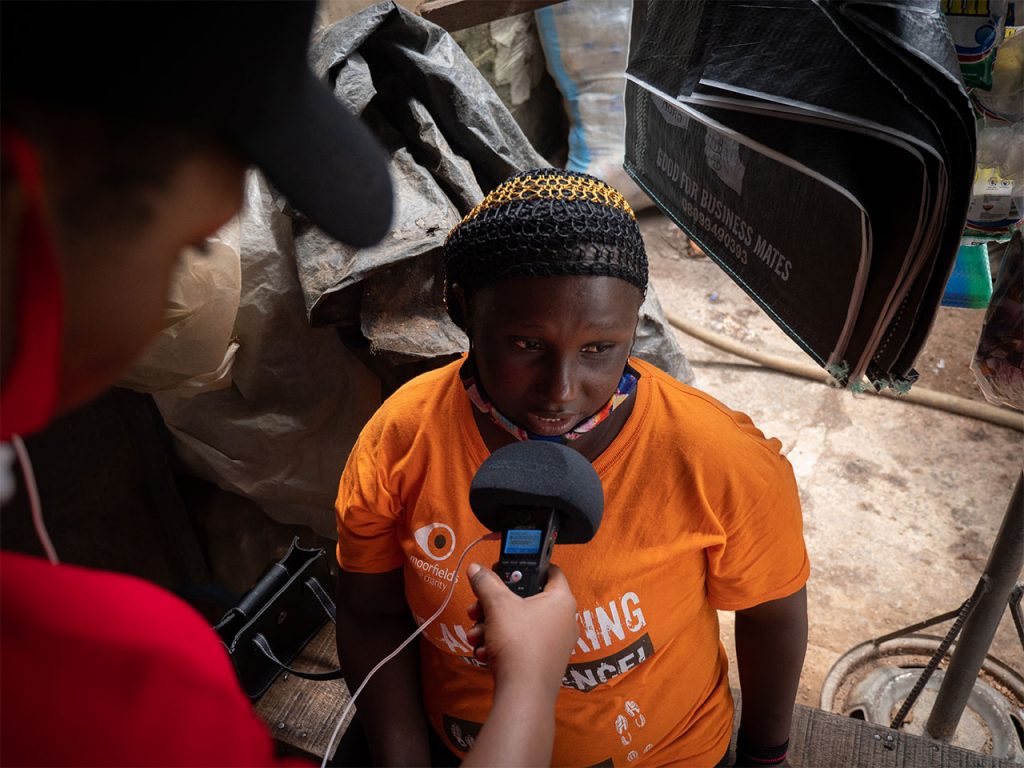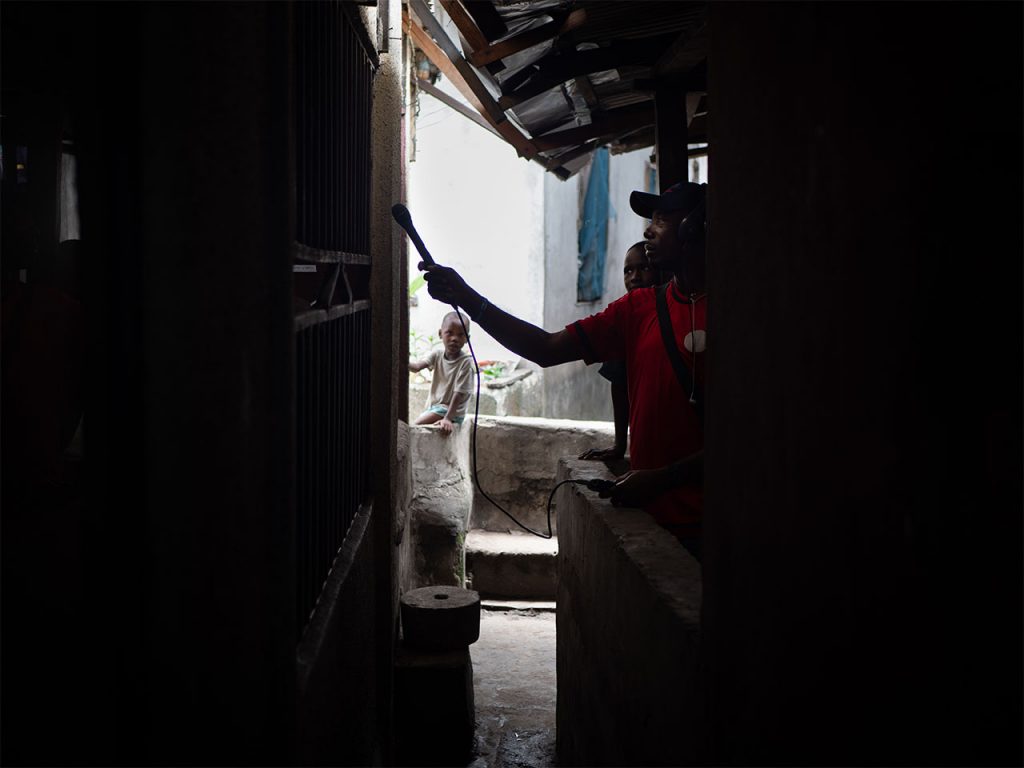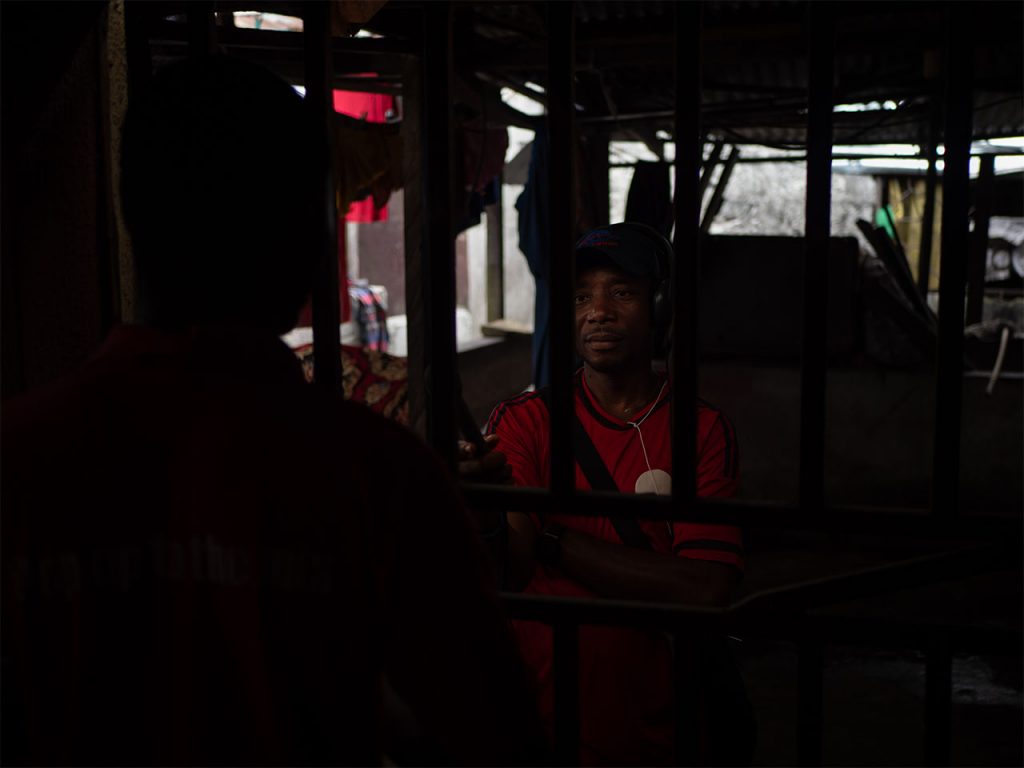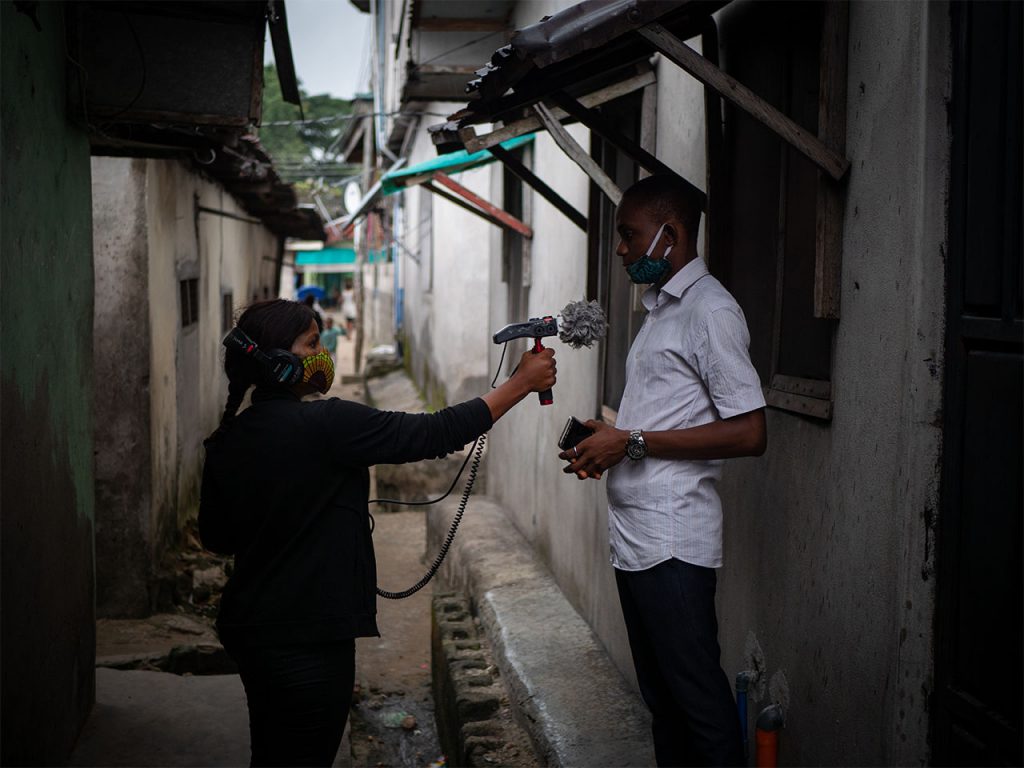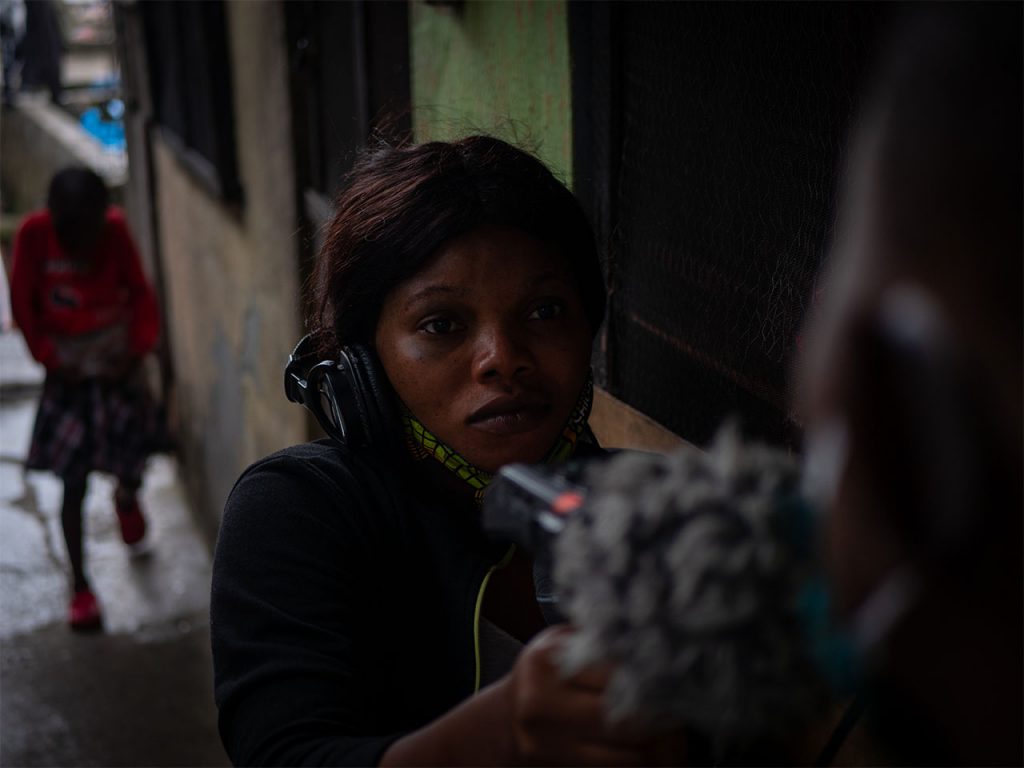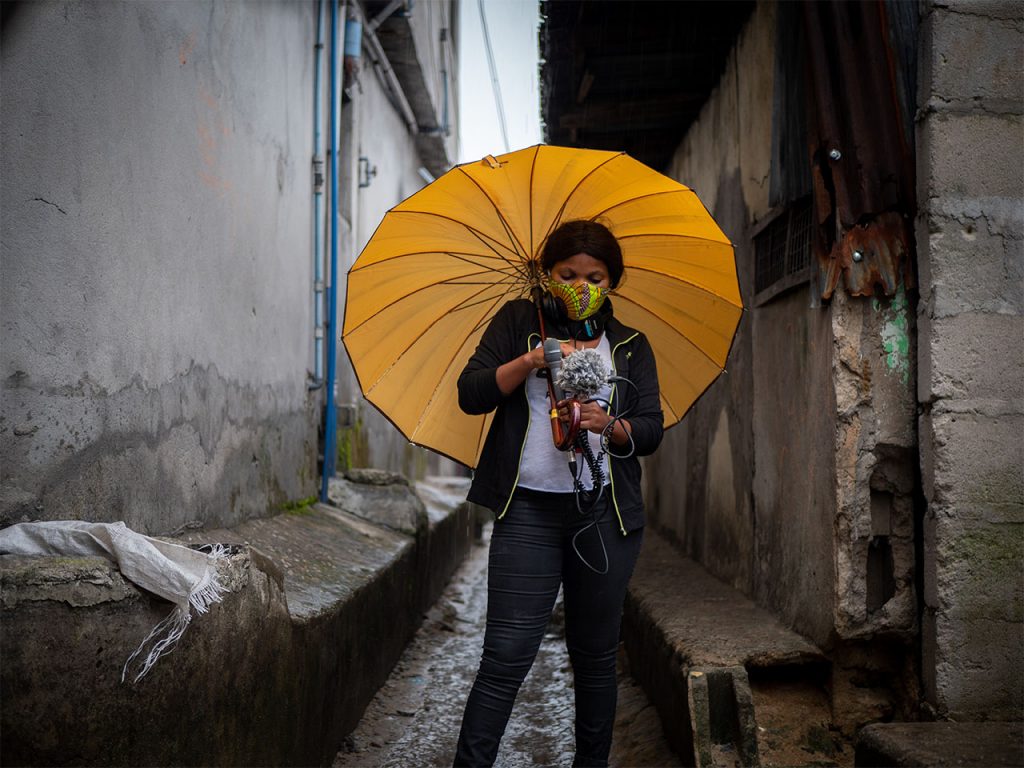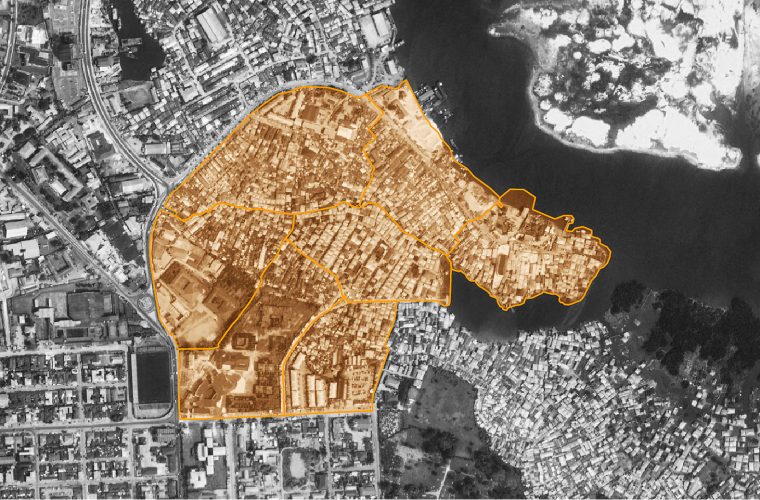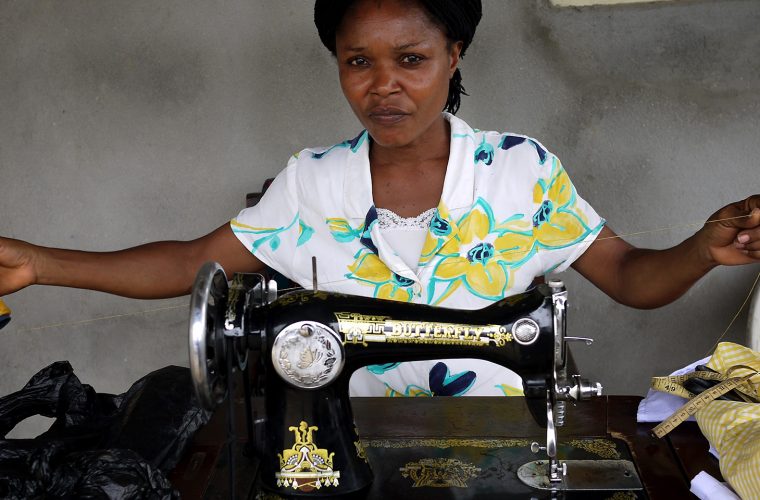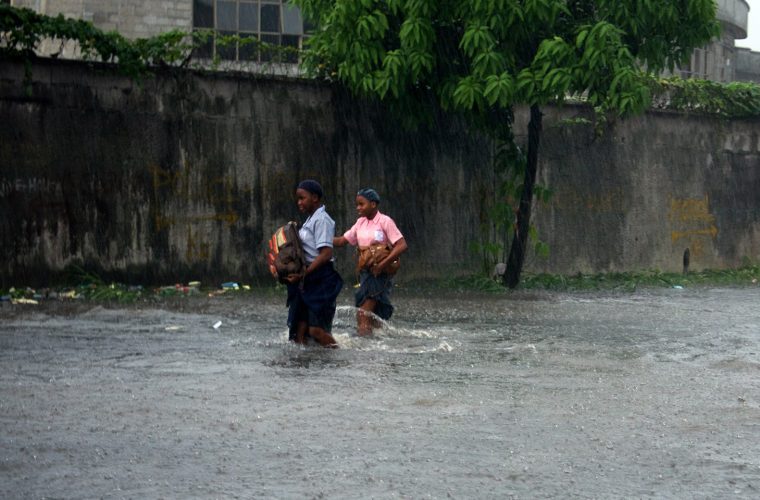Chicoco Crew: Covering Corona
Stories of the storytellers: our coverage of the pandemic’s impacts on the informal waterfront communities of Nigeria’s oil capital is brought to you by young residents of the waterfronts. Citizen journalists in the time of coronavirus, the journey of our crew is a story worth telling. This photo-series and story make the first episode of a new series in which the Chicoco crew share their own stories. Here’s our very own Imanny:
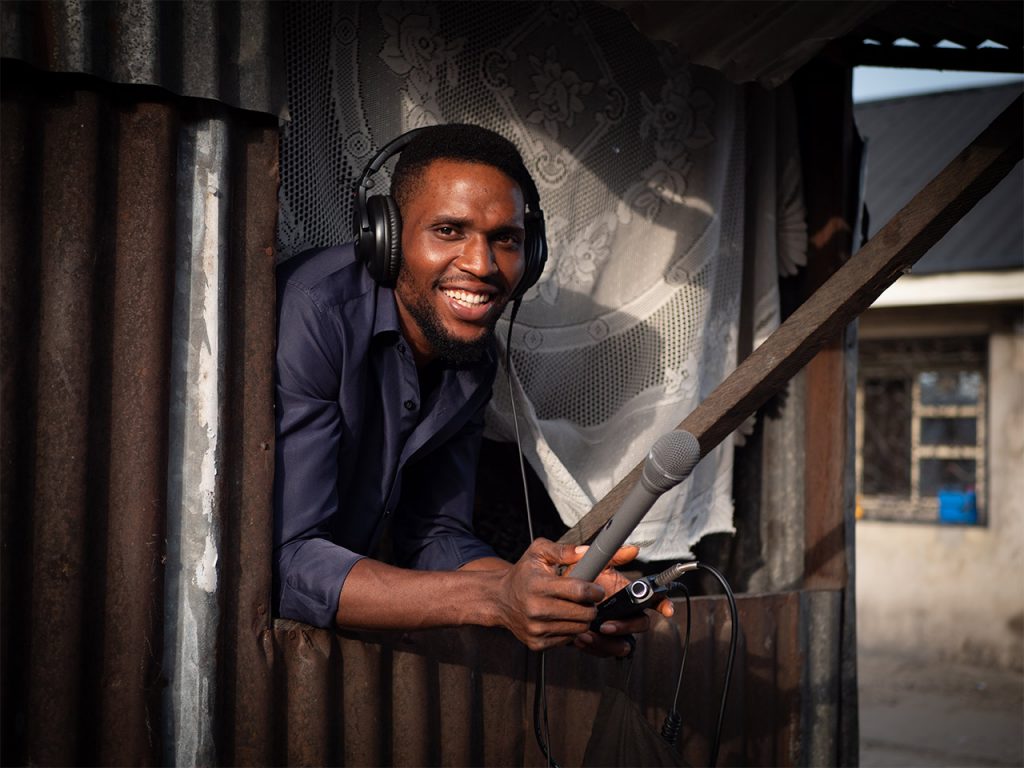
Through these strange days of the pandemic, I have been covering my Chicoco colleagues covering corona. I have been gathering images of them as they gather the sounds and stories of their streets and neighbourhoods.
The sounds, shapes and colours of the world around me always spoke to me, though mostly in a language I couldn’t translate. The first time I picked up a mobile phone with a camera, I started taking pictures and shooting little clips.
I was involved in making movies and music before Chicoco. I worked in a studio with some friends, but this is a tough city to keep something like that going when you are young and broke.
Another friend told me about Chicoco. He had seen one of their reporters covering a demolition and told me they had radio and music studios at Okrika Waterfront. They trained participants for free and the aim was that they would develop the skills to eventually take over and run the facilities they were being trained in.
I turned up at the studios one day. Then I turned up the next day. And the next.
At Chicoco we are encouraged to ‘think with our eyes and ears’, to look and listen to our city closely, clearly and to claim it. It has been permanent adrenaline! Looking at my city through the lens of Chicoco, as one of our project photographers, has changed the way I see and understand Port Harcourt. And changed the way I understand myself.
It is not just through photography that I’ve been exploring my city with Chicoco, but also through mapping. And rapping. This has all helped me understand my city as a tangle of systems and flows, relationships and dramas. It is not just concrete and mud. Music; maps; movies: I know these won’t change the city overnight, won’t stop the police picking up people who look like me off the street for no reason and extorting them, won’t suddenly make our elections fair, won’t bring steady light or piped water; but I do know that seeing and imagining the city in new ways is an essential part of transforming it.
When the pandemic hit Port Harcourt, the lockdown order was sudden, severe and harshly enforced. Soldiers were flogging people in the street, police check points were set up around neighbourhoods like mine and the governor was driving around with an armed entourage, personally arresting people and ordering them to a ‘quarantine centre’ that was in fact a football stadium where people were forced to huddle together under the sun for hours.
During those days I spent a lot of time indoors looking at the city through the frame of my window. But before and since, days are spent looking through the frame of my camera. Photographing city scenes with my Chicoco Collective colleagues as they do their daily rounds of story gathering, we are connecting local stories with global issues.
It is a scary time to be taking photos in Port Harcourt. Perhaps the policeman feels threatened by the lens – it might expose what, in any case, is daylight robbery? Perhaps the market trader fears being photographed setting up her stall in defiance of the governor’s market closure order? Perhaps one of the boys on the corner thinks my camera is worth more than I deserve? And even though I am aware of the risks posed by the virus, wear a facemask, keep my distance whenever possible, the secret market is crowded, the alleys in our communities are tight and I want to get a good angle and I want others to see the work my colleagues are doing to make themselves and their communities seen and heard. So though it is sometimes scary, I take courage. And I hope that some of these images might encourage others to get involved, in whatever modest ways we can, in transforming our city.

